

TRAVELGUM CHEW.GUM 20MG/GUM BTx10 (BLIST 2x5)
Σκεύασμα - Πληροφορίες για τη χρήση
- Οδηγίες χρήσης
- Προφυλάξεις
- Φαρμακολογία
- Περισσότερα
Ναυτία των ταξιδιωτών (ναυτία και έμετος λόγω του ταξιδιού με αυτοκίνητο, τρένο, αεροπλάνο ή πλοίο).
Δοσολογία και τρόπος χορήγησης
Ακολουθείστε προσεκτικά τις δοσολογίες που αναφέρονται στη συνέχεια, εκτός αν έχει συνταγογραφηθεί από το γιατρό.
Άτομα ιδιαίτερα ευαίσθητα στη ναυτία των ταξιδιωτών, θα πρέπει να μασούν 15 έως 30 λεπτά περίπου πριν από το ταξίδι 1 τσίκλα TRAVELGUM επί 10 λεπτά. Σε περίπτωση που εμφανιστούν τα συμπτώματα από τη ναυτία του ταξιδιού, μία δεύτερη τσίκλα θα πρέπει να μασηθεί με την εμφάνιση των πρώτων σημείων.
Σε περιπτώσεις όπου η ναυτία των ταξιδιωτών δεν έχει εκδηλωθεί στο παρελθόν, το TRAVELGUM θα πρέπει να μασηθεί με την εμφάνιση των πρώτων συμπτωμάτων (ναυτία, έμετος). Εάν λαμβάνονται ημερησίως περισσότερες από 6 έως 7 τσίκλες, κόπωση ή άλλες παρενέργειες μπορεί να εκδηλωθούν πιο έντονα.
Ιδιαίτερες προφυλάξεις για την φύλαξη του προϊόντος
Το προϊόν φυλάσσεται σε θερμοκρασία < 30°C.
Να φυλάσσεται μακριά από τα παιδιά.
Ημερομηνία λήξης
Ενημερωθείτε για την ημερομηνία λήξης.
Χρήσιμα εργαλεία
Έλεγχος συγχορήγησης >
Τσίχλα TRAVELGUM: Ενδείξεις και δοσολογία
TRAVELGUM ® 20 mg Dimenhydrinate 20 mg
Φαρμακευτικό μασώμενο κόμμι (Τσίκλα)
10 ΤΣΙXΛΕΣ ΚΑΤΑ ΤΗΣ ΝΑΥΤΙΑΣ ΣΥΝΘΕΣΗ
Για την πρόληψη της ναυτίας που μπορεί να προκληθεί όταν ταξιδεύετε με πλοίο, λεωφορείο, αυτοκίνητο, τρένο ή αεροπλάνο. Η δραστική ουσία του TRAVELGUM, η διμενυδρινάτη, είναι ένα αντιϊσταμινικό το οποίο έχει την ειδική ικανότητα να αναστρέφει τη ναυτία και τον έμετο. Δρα κατά τη μάσηση όπου το δραστικό συστατικό απελευθερώνεται και απορροφάται απευθείας στην αιματική κυκλοφορία μέσω του στοματικού βλεννογόνου. Έτσι, μασώντας απλά μια τσίχλα TRAVELGUM 15 έως 30 λεπτά πριν ξεκινήσετε, μπορείτε να αποφύγετε τις δυσάρεστες ενοχλήσεις.
Κάθε φαρμακευτικό μασώμενο κόμμι (τσίχλα) περιέχει:
Δραστική ουσία: Dimenhydrinate
Έκδοχα: Eudragit S, Chewing Gum Base, Dextrin, Aspartame, Saccharin Sodium, Peppermint Flavor, Magnesium oxide light, Sorbitol, Sucrose, Witepsol E85, Wax, Menthol, Silicon dioxide colloidal (Aerosil 200), Talc, Magnesium stearate.
Επικάλυψη: Eudragit E, Magnesium stearate, Sucrose, Polyvidone 25, Macrogol, Dextrose (Glucose) liquid, Potassium phosphate monobasic, Calcium carbonate, Titanium dioxide E171 CI 77891, Talc, Peppermint flavor, Menthol, Wax E.
ΦΑΡΜΑΚΟΛΟΓΙΚΕΣ ΙΔΙΟΤΗΤΕΣ ΚΑΙ ΑΠΟΤΕΛΕΣΜΑΤΙΚΟΤΗΤΑ
Η διμενυδρινάτη είναι ένα αντιϊσταμινικό το οποίο έχει μια ειδική ικανότητα να αντιστρέφει τη ναυτία και τον έμετο. Το σημείο της δράσης της είναι στις νευρικές οδούς του αιθουσαίου συστήματος (αιθουσαίους νευρώνες). Κατά τη μάσηση το δραστικό συστατικό απελευθερώνεται και απορροφάται απευθείας στην αιματική κυκλοφορία μέσω του στοματικού βλεννογόνου.
Με αυτού του είδους τη στοματική χορήγηση υπάρχει ένα καθαρό πλεονέκτημα κατά τα ταξίδια και για τα παιδιά, σε σχέση με άλλα φάρμακα που πρέπει να καταπίνονται.
Αυτός είναι ο λόγος για τον οποίο το TRAVELGUM είναι αποτελεσματικό ακόμη και μετά την εκδήλωση του εμέτου και της ναυτίας. Έτσι το TRAVELGUM είναι ιδιαίτερα κατάλληλο για την πρόληψη της ναυτίας των ταξιδιωτών.
Ναυτία των ταξιδιωτών (ναυτία και έμετος λόγω του ταξιδιού με αυτοκίνητο, τρένο, αεροπλάνο ή πλοίο).
ΧΟΡΗΓΗΣΗ ΚΑΙ ΔΟΣΟΛΟΓΙΑ
Ακολουθείστε προσεκτικά τις δοσολογίες που αναφέρονται στη συνέχεια, εκτός αν έχει συνταγογραφηθεί από το γιατρό.
Άτομα ιδιαίτερα ευαίσθητα στη ναυτία των ταξιδιωτών, θα πρέπει να μασούν 15 έως 30 λεπτά περίπου πριν από το ταξίδι 1 τσίκλα ΤRAVELGUM επί 10 λεπτά. Σε περίπτωση που εμφανιστούν τα συμπτώματα από τη ναυτία του ταξιδιού, μία δεύτερη τσίκλα θα πρέπει να μασηθεί με την εμφάνιση των πρώτων σημείων.
Σε περιπτώσεις όπου η ναυτία των ταξιδιωτών δεν έχει εκδηλωθεί στο παρελθόν, το ΤRAVELGUM θα πρέπει να μασηθεί με την εμφάνιση των πρώτων συμπτωμάτων (ναυτία, έμετος). Εάν λαμβάνονται ημερησίως περισσότερες από 6 έως 7 τσίκλες, κόπωση ή άλλες παρενέργειες μπορεί να εκδηλωθούν πιο έντονα.
ΑΝΤΕΝΔΕΙΞΕΙΣ
Υπερευαισθησία σ’ ένα από τα συστατικά. Ασθενείς με φαινυλκετονουρία (λόγω του συστατικού ασπαρτάμη). Γλαύκωμα κλειστής γωνίας. Συμπτωματική υπερτροφία προστάτου. Οξεία ασθματική κρίση, στένωση του γαστρεντερικού σωλήνα ή του αυχένα της χοληδόχου κύστης, στένωση του λεπτού εντέρου, κατά τη διάρκεια θεραπείας και 1 έως 2 εβδομάδες μετά τη θεραπεία με αναστολείς της ΜΑΟ (αντικαταθλιπτικούς παράγοντες).
ΠΡΟΣΟΧΗ ΣΤΗ ΧΟΡΗΓΗΣΗ
Προσοχή απαιτείται σε περίπτωση σπασμών (επιληψία, εκλαμψία) και ανεπάρκεια γλυκοζο-6-φωσφορικής δεϋδρογονάσης. Η διάγνωση σε περιπτώσεις εγκεφαλικού όγκου, θα μπορούσε να είναι πιο δύσκολη.
ΕΓΚΥΜΟΣΥΝΗ ΚΑΙ ΘΗΛΑΣΜΟΣ
Το προϊόν δεν θα πρέπει να χρησιμοποιείται κατά την περίοδο της εγκυμοσύνης και του θηλασμού. Σε περίπτωση εγκυμοσύνης παρακαλείσθε να συμβουλευτείτε το γιατρό σας.
ΑΝΕΠΙΘΥΜΗΤΕΣ ΕΝΕΡΓΕΙΕΣ (ΠΑΡΕΝΕΡΓΕΙΕΣ)
Συνήθως: υπνηλία, ξηρότητα στοματικού βλεννογόνου.
Σποραδικά: ανησυχία, νευρικότητα, αϋπνία (ιδιαίτερα για τα παιδιά), πτώση της αρτηριακής πίεσης.
Περιστασιακά: ενοχλήσεις στο γαστρεντερικό σωλήνα, διαταραχές της όρασης, ενοχλήσεις κατά την ούρηση, ίλιγγος/ζάλη, πονοκέφαλος, μυϊκή αδυναμία, αταξία των συντονισμένων κινήσεων (ιδιαίτερα σε υψηλότερη δοσολογία). Σε περίπτωση υπερευαισθησίας μπορεί να εμφανιστούν δερματικές αντιδράσεις (υψηλότερη φωτοευαισθησία του δέρματος).
ΑΛΛΗΛΕΠΙΔΡΑΣΕΙΣ ΜΕ ΑΛΛΑ ΦΑΡΜΑΚΑ
Κατά τη χορήγηση της τσίκλας ΤRAVELGUM 20 mg η αποτελεσματικότητα άλλων φαρμάκων τα οποία λαμβάνονται ταυτόχρονα μπορεί να ενταθεί.
- Υπνωτικά, ηρεμιστικά.
- Αντιχολινεργικά (π.χ. αντιπαρκινσονικά, αντικαταθλιπτικά). Το αλκοόλ ενισχύει την κατασταλτική δράση του φαρμάκου.
Μπορεί να συγκαλύψει τα συμπτώματα της ωτοτοξικότητας ορισμένων αντιβιοτικών. Παρακαλείσθε να ενημερώσετε το γιατρό σας για οποιαδήποτε ταυτόχρονη θεραπεία.
ΕΙΔΙΚΕΣ ΠΡΟΕΙΔΟΠΟΙΗΣΕΙΣ ΓΙΑ ΑΣΦΑΛΗ ΧΟΡΗΓΗΣΗ
Η διμενυδρινάτη μπορεί να μειώσει την ικανότητα αντίδρασης λόγω της ελαφρώς ηρεμιστικής της επίδρασης κι επομένως απαιτείται προσοχή κατά την οδήγηση ή χρήση μηχανημάτων.
Σημείωση για διαβητικούς: Μία τσίχλα περιέχει 0,476 g ζάχαρης (αντιστοιχούν σε 0,04 ΒU).
Το προϊόν περιέχει ασπαρτάμη: η περιεκτικότητα ασπαρτάμης που μπορεί να λαμβάνεται ανά ημέρα δεν πρέπει να υπερβαίνει τα 40 mg/kg βάρους σώματος. Απαγορεύεται η λήψη του προϊόντος από ασθενείς που πάσχουν από φαινυλκετονουρία.
Οι τσίκλες ΤRAVELGUM δεν πρέπει να καταπίνονται γιατί κάτι τέτοιο θα επιδείνωνε τη ναυτία. Ωστόσο είναι αβλαβής η ακούσια κατάποση της τσίκλας.
Εάν τα συμπτώματα δεν υποχωρήσουν και δεν επιτευχθεί το επιθυμητό αποτέλεσμα απαιτείται ιατρική συμβουλή το συντομότερο δυνατόν.
Με το πρώτο σημείο παρενεργειών ή σε περίπτωση κύησης παρακαλείσθε να αποτανθείτε στο γιατρό σας.
Το προϊόν φυλάσσεται σε θερμοκρασία ≤30 ο C. Ενημερωθείτε για την ημερομηνία λήξης.
Να φυλάσσεται μακριά από τα παιδιά. Σε περίπτωση σύγχυσης ζητείστε επαγγελματική συμβουλή.
Δεν απαιτείται ιατρική συνταγή.
Δείτε επίσης
- Το πιπέρι καγιέν μειώνει την όρεξη!
- Μην αφήνετε τον σκύλο να σας γλείφει!
- Έχετε στρες; Το ελαφρό “χτύπημα” που σας βοηθάει να ηρεμήσετε
- Αναποτελεσματική η δίαιτα όταν τρώμε σε λάθος ώρες
- Η καλή ενυδάτωση του σώματος σχετίζεται με λιγότερα περιττά κιλά
- Απλή άσκηση δείχνει πόσο θα ζήσουμε!
- Τα μανιτάρια είναι πιο χορταστικά από το κρέας

- Η ψηφιακή ενσυνειδητότητα μπορεί να μειώσει το τεχνολογικό στρες
- Aναλογία μέσης προς ύψος: Ποια είναι η υγιής τιμή;
- Η αναλογία μέσης προς ύψος ανιχνεύει την παχυσαρκία σε παιδιά και εφήβους καλύτερα από τον ΔΜΣ

FREE WORLDWIDE SHIPPING ON EVERY ORDER!

Travel-Gum 20 mg Travel Nausea Relief Chewing Gum 10pcs
- $20.50 $20.50
Travel-Gum 20 mg chewing gum is used to treat sick nausea and vomiting (so-called kinetosis - nausea and vomiting when traveling by road, train, plane or boat). By chewing, the active substance is absorbed from the mouth straight into the blood, and therefore works even when the nausea or vomiting has already occurred. The effect takes 15-30 minutes. Use is very simple, it does not have to be swallowed or swallowed. The product is intended for adults and adolescents from 15 years of age.
Travel-gum chewing gums chew 15 to 30 minutes before the planned trip and 10 minutes. After 10 minutes it spits out. Another chewing gum can be used at the earliest after 6 hours. Its effect lasts 1-3 hours . The maximum number is 6-7 chewing gum per day. If signs of illness do not improve or worsen within 1 hour, or if you experience side effects or some unusual reactions, consult your doctor for further advice.
Composition:
dimenhydrinate 20 mg in 1 chewing gum
The other ingredients are: potassium dihydrogen phosphate, modified montane wax, povidone 25, saccharin sodium salt, aspartame, methacrylate copolymer type E, methacrylate copolymer type B, methacrylate copolymer type S, 12.5% methacrylate copolymer solution, titanium dioxide, liquid glucose , colloidal anhydrous silica, levomenthol, white wax, macrogol 6000, magnesium stearate, magnesium oxide, peppermint flavor, dextrin, suppository base E 85, calcium carbonate, glucose, talc, sorbitol, sucrose, chewing gum.
The product may adversely affect activities requiring increased attention, coordination of movements and rapid decision-making (eg driving a motor vehicle, operating machinery, working at heights, etc.). Drivers should not take this medicine.
Customer Reviews
We also recommend.
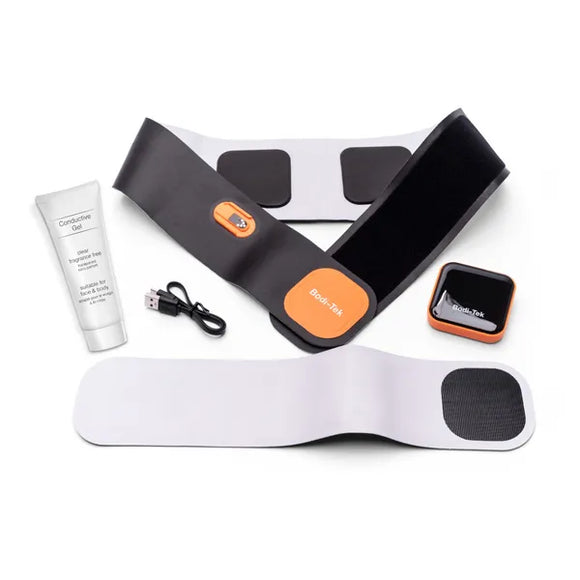
Bodi-Tek ABSH Electrostimulator for abdominal muscles
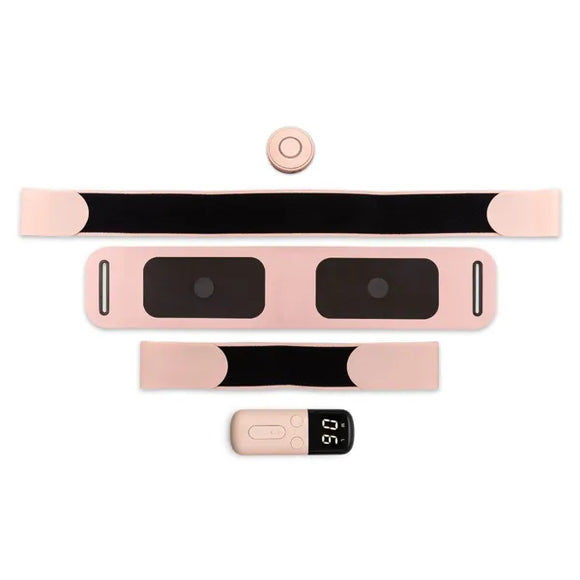
Bodi-Tek ABST Electrostimulator for abdominal muscles

Bodi-Tek ABTR5 Electrostimulator for abdominal muscles

Beggs Iron bisglycinate 20 mg rosehip extract 100 capsules

Beggs Balanced Hair & Skin Complex 90 capsules
- choosing a selection results in a full page refresh
National Geographic content straight to your inbox—sign up for our popular newsletters here

Vassilis Ballas and his wife, Roula Boura, extract resin from a mastic tree on Chios. The year-round process of mastic cultivation has changed little since antiquity.
This healing plant grows on only one Greek island
Since antiquity, Chios has drawn visitors with its prized, aromatic resin.
Walk Pyrgi’s narrow, medieval streets and you’ll see buildings, arches—even the undersides of balconies—etched with intricate, black-on-white, geometric patterns. Strings of cherry tomatoes and drying peppers sway above women who comb through leafy twigs with the concentration of diamond hunters. They’re searching for blobs of hardened white goo: mastic, the natural resin prized since antiquity for its aromatic and healing properties.

Women pick mastic drops outside their homes in Pyrgi. The buildings are decorated with xysta , the traditional, geometric, black-and-white patterns that date back centuries.
Pyrgi is one of 24 mastic-producing villages, or mastichochoria , on the Greek island of Chios . Although the mastic tree ( Pistacia lentiscus) is ubiquitous throughout the Mediterranean, the variety that weeps mastic resin grows only on the southern part of Chios—a quirk of nature that led to the island’s rich, twisting history.
The gum monopolies
For millennia, mastiha (mastic) has been the fame, economic force, and source of identity for Chios and its inhabitants. Herodotus mentioned it back in the fifth century B.C., the Romans chewed it to clean their teeth and freshen their breath, and the Ottomans exalted it as a spice.
Related: Discover the Peloponnese, the heart of ancient Greek culture.
Its cultivation in earnest began with the 14th-century arrival of the Genoese, who monopolized the mastic trade and built the mastichochoria with fortress-like wall-to-wall houses, a maze of streets to fool raiders, and a central watchtower to signal attacks. To prevent illegal trading, they instituted night curfews for villagers and severe punishments for stealing mastic.

Mastic is known in Greece as the “tears of Chios” for the transparent beads of resin that harden and darken over time. Bitter at first, the flavor becomes piny and herbal the longer you chew.
When the Ottomans took over in the 16th century, they kept the monopoly. Only in 1840 were mastic producers finally allowed to trade independently what they’d cultivated, and less than a century later they joined forces to create the Chios Mastiha Growers Association (CMGA), a cooperative active to this day.
Related: Eat like a god on this sun-soaked Greek island.
Regime changes notwithstanding, mastic cultivation and production have remained largely the same over the centuries. Still centered around the 24 villages, it’s a year-round affair that begins with tending to the soil, continues with making shallow cuts in the bark for the mastic to seep from, and culminates with harvest and cleaning. Most of this process is done by hand. Like generations before them, today’s producers often call upon families and neighbors to help.
How to visit
Though geographically closer to Turkey than to Greece, Chios is a short flight east from Athens on Olympic Air . Or hop on the overnight ferry from Piraeus to Chios town.
Visit from August to September to witness the tree carving process, or between October and March to see mastic being cleaned. Rent a car and start your trip with the Chios Mastic Museum , which offers an excellent overview of the mastic cultivation and production process, plus a grove of mastic trees visitors can wander in search of mastic “tears” glistening in the sun.
Related: She arrived a tourist. This Greek island’s beauty inspired her to become its only nun.

The town of Chios, on the eponymous island’s east coast, has a harbor that receives ferry boats from Piraeus, a port in the Athens metropolitan area.
Then continue on to “painted” Pyrgi, nearby Olympi, Mesta, and other villages to wander the streets and admire the churches. Agioi Apostoli, just off of Pyrgi’s central square, is an example of 13th-century Byzantine architecture that features well-preserved 17th-century frescos. In Limenas, feast on fresh-caught grilled fagri (local seabass) at O Sergis Taverna . If you’re lucky, you’ll see the family’s yiayia (grandmother) rolling homemade cheese balls.
To get a feel for what aristocratic life was like on Chios during the Genoese period and beyond, stay in a guesthouse in Kampos , an area known for its high stone walls, imposing mansions, and sprawling citrus gardens. For an evening drink, head to Chios town’s waterfront to sample a mastic sour at Pura Vida —or try mastic spirit straight. Want to learn more about the distillation process? Contact Stoupakis Distillery , one of the island’s oldest, to arrange a tour.
Before you leave, stock up on liqueur, supplements, pasta, and just about everything else mastic at CMGA’s Mastiha Shop , also on the waterfront. Snack on a package of mastic tears to continue the island’s millennia-old tradition of chewing mastiha au naturel.
Related: see the best islands for adventurers

- Nat Geo Expeditions
FREE BONUS ISSUE
Related topics.
- CULTURAL TOURISM
- FOOD HISTORY
- FOOD TOURISM
You May Also Like

How to spend the perfect food weekend on the Greek island of Tinos

Everything you need to know about moussaka, the classic Greek dish
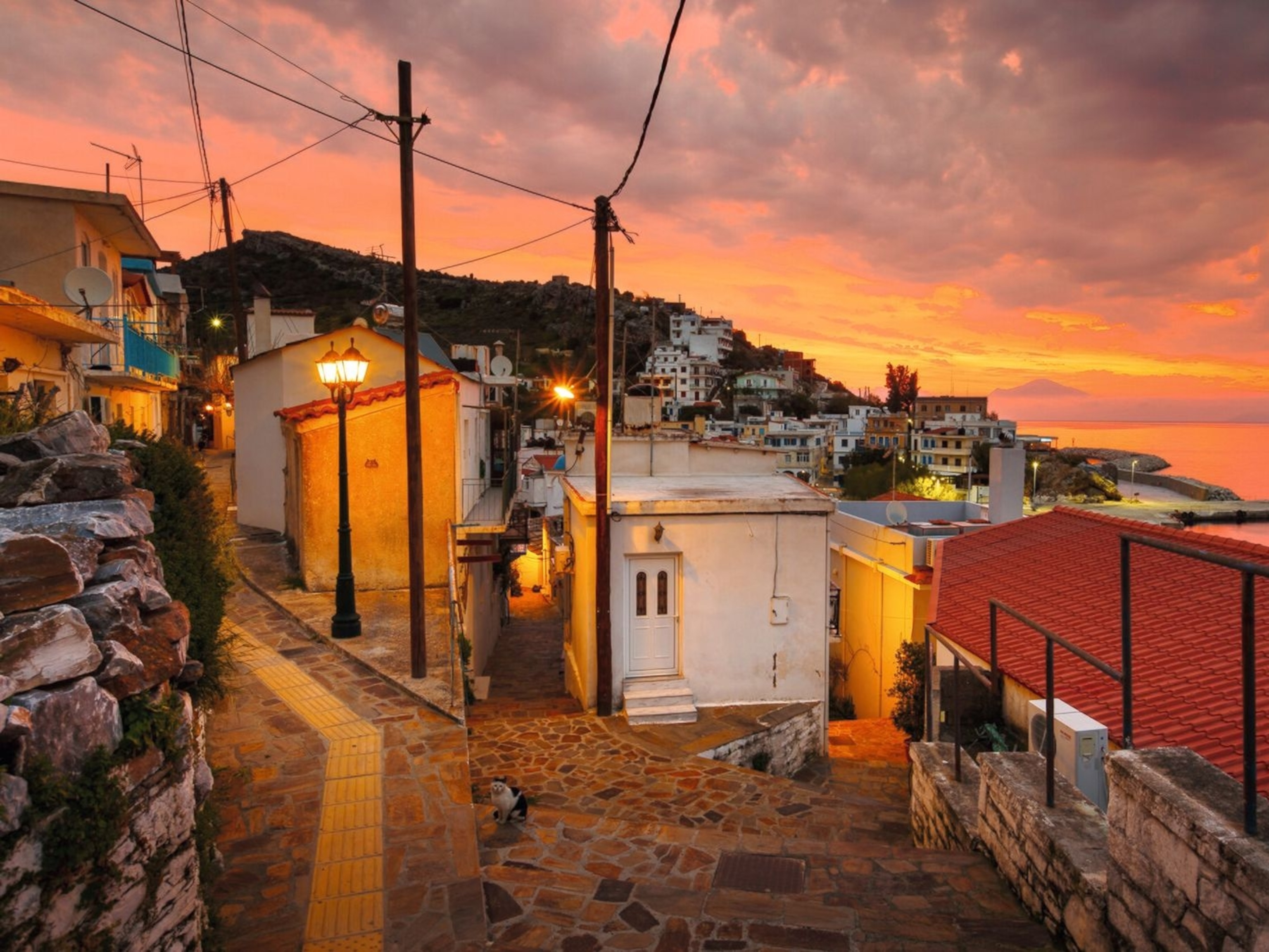
Exploring Ikaria, Greece's island of immortals

Islands Collection 2022

Can this Greek island’s hidden treasures lure travelers?
- Environment
- Perpetual Planet
- History & Culture
- Paid Content
History & Culture
- Mind, Body, Wonder
- Terms of Use
- Privacy Policy
- Your US State Privacy Rights
- Children's Online Privacy Policy
- Interest-Based Ads
- About Nielsen Measurement
- Do Not Sell or Share My Personal Information
- Nat Geo Home
- Attend a Live Event
- Book a Trip
- Inspire Your Kids
- Shop Nat Geo
- Visit the D.C. Museum
- Learn About Our Impact
- Support Our Mission
- Advertise With Us
- Customer Service
- Renew Subscription
- Manage Your Subscription
- Work at Nat Geo
- Sign Up for Our Newsletters
- Contribute to Protect the Planet
Copyright © 1996-2015 National Geographic Society Copyright © 2015-2024 National Geographic Partners, LLC. All rights reserved
13 things to know before you go to Greece and the Greek Islands

Mar 6, 2024 • 8 min read
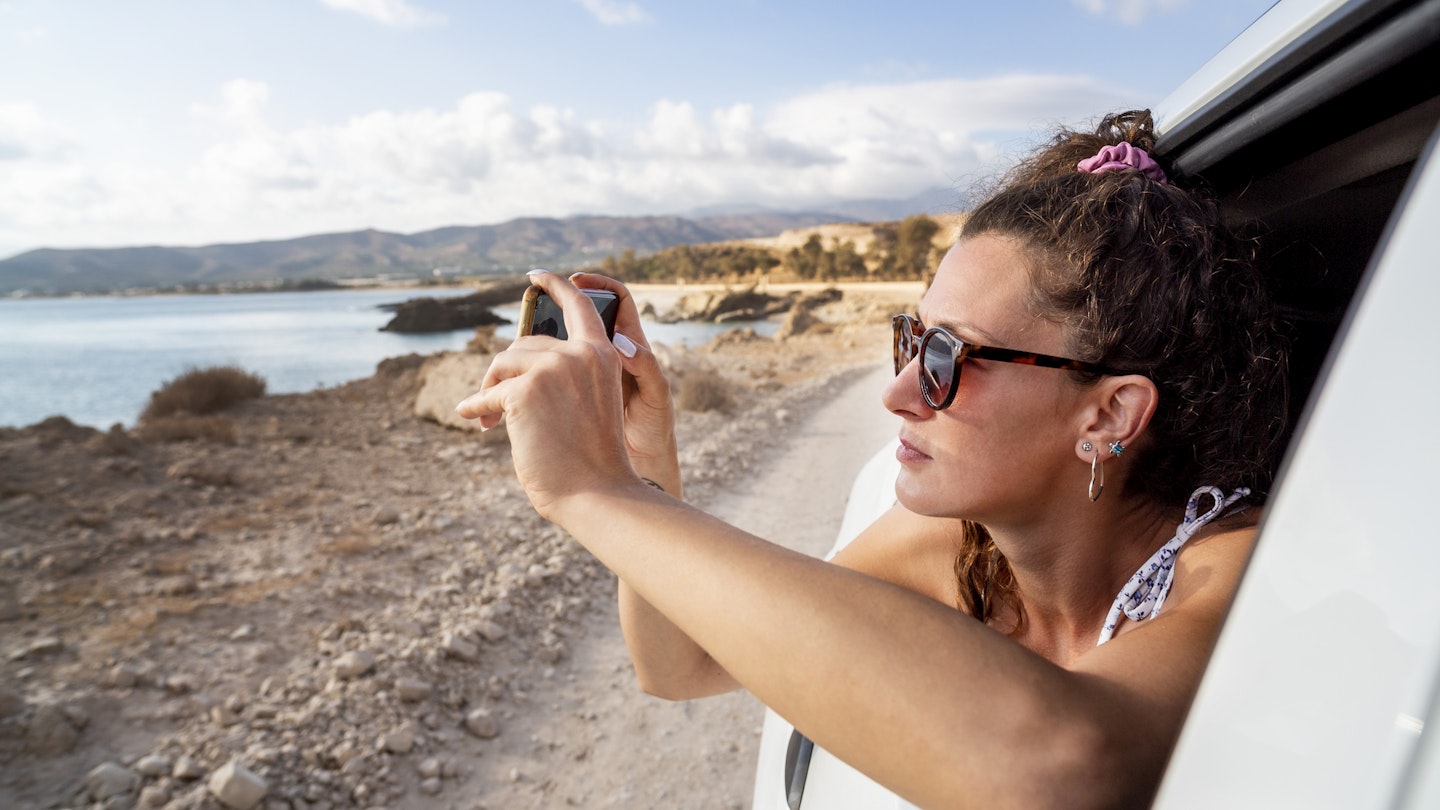
These top planning tips can help you prep for a trip to Greece, from health and safety to local etiquette © EMS-FORSTER-PRODUCTIONS / Getty Images
Get out your bucket list; it’s time to cross off a major line item: Greece .
The fabled land remains tops for culture , food, outdoor travel, art and, of course, beaches and islands . As part of the border-free Schengen Area, it’s also incredibly easy to visit for many travelers worldwide. From advance booking to local etiquette – and health and safety issues when you're there – here's everything you need to know to plan a memorable trip to Greece.
1. Choose your season wisely
Your experience in Greece will be wildly different depending on when you visit . Summer is tops for action, family fun, and swimming in the Mediterranean Sea, but prices are at their highest and pre-booking is necessary for everything since it’s all so popular.
The shoulder seasons (spring and autumn) are a delight – prices are lower, and rooms and resources are more readily available. Winter offers a moody and budget-friendly retreat, great for walking, hiking and sedate travels where you will often be the only visitor around. Bear in mind that some businesses will shut down completely during the low season.
2. Prioritize your wishlist and make a plan
Do you want a grand tour, taking in the not-to-be-missed highlights all over Greece, or would you prefer to focus your time on exploring your favorite islands or regions, like the Peloponnese ?
The best way to choose from the dizzying array of options on offer is to focus on what is important to you – relaxing on beautiful beaches, learning more about Greece's fascinating history and culture , museums and archaeology, off-the-beaten-track wildlife, or partying until dawn – and plan accordingly.
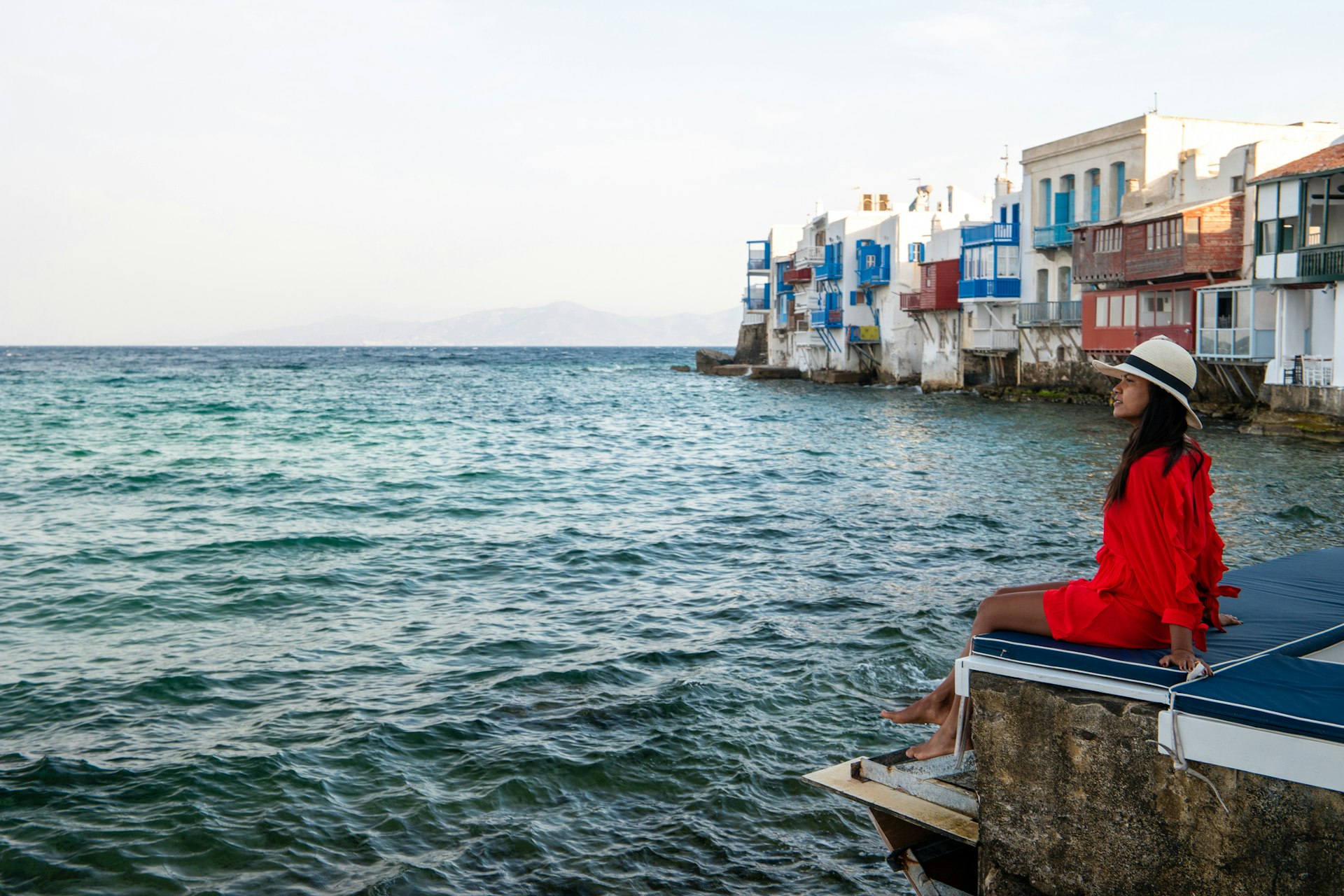
3. Find the perfect island or region for you
Greece merits multiple trips as every island offers something different , and each of its regions is equally dazzling – you're never going to see everything on your first visit, and you'll ruin your trip if you pressure yourself to do just that. Also, don’t be fooled that the biggies are the only islands worthy of your attention. Though Mykonos , Santorini and the major names have plenty to offer, lesser-known islands (there are hundreds!) like Amorgos or Kythira are also a delight. They've also got the added bonus of smaller crowds and lower prices if that's a key consideration for you.
4. Athens isn't the only gateway to Greece
In many cases, you will find it useful to transit in or out of Greece via Athens , as its airport has connections with numerous international destinations, and the city itself is a gem . However, there are other international airports around the Greek mainland (such as in Thessaloniki ) and on some major islands (such as Mykonos , Santorini and Corfu ).
If you need any internal flights to get to your destination of choice, it's worth checking the price of these individually. Due to government subsidies, it can work out significantly cheaper to book each part of your Greek itinerary separately from your international flights.
5. Book everything in advance during peak season
In peak season , prices are high, and demand for car hire, accommodations and ferry tickets is even higher – this is not the time for ad hoc bookings on the fly. Greece is an incredibly popular summer destination, and the best options get snapped up well in advance.
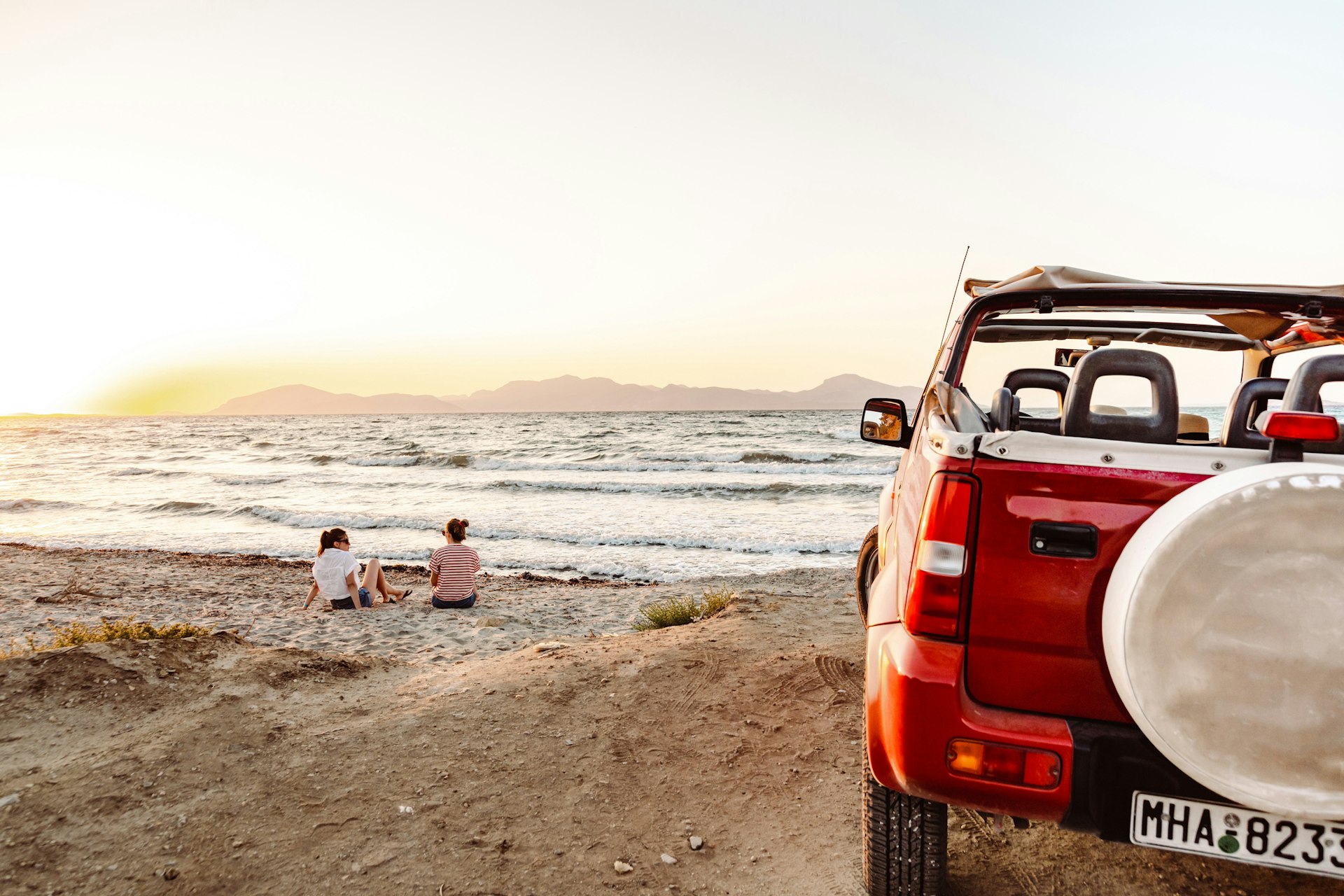
6. Roads in Greece are for confident drivers
No one who has traveled on Greece’s roads will be surprised to hear that the country’s road fatality rate is one of the highest in Europe. Overtaking is listed as the greatest cause of accidents. Heart-stopping moments aside, your own car is a great way to explore off the beaten track if you are confident in your driving and keep a few key points in mind.
- The road network has improved enormously in recent years; many roads marked as dirt tracks on older maps have now been sealed, and a lot of the islands have very little traffic.
- There are regular (if costly) car-ferry services to almost all islands.
- Greece is not the best place to initiate yourself into motorcycling. If you're not confident on a motorbike, it may be best to park this option until you have more experience.
- All the big multinational car-rental companies are represented in Athens, and most have branches in major towns and popular tourist destinations. The majority of islands have at least one outlet.
7. Greece is not very wheelchair-friendly beyond Athens
Access for travelers with disabilities has improved somewhat in recent years, but the majority of accessible sights, hotels and restaurants tend to be located in Athens. While improvements are on the horizon for beach access, much of the rest of Greece remains inaccessible to wheelchairs, and the abundance of stones, marble, slippery cobbles and stepped alleys create frustrating barriers for those with mobility issues. People who have visual or hearing impairments are also rarely catered for.
Careful planning before you go can make a world of difference. There are specific resources online that provide links to local articles, resorts and tour groups catering to tourists with physical disabilities.
8. Pack the right kinds of clothing
Athenians are well-dressed, and the younger crowd is trendy, so keep your smart clothes for the urban catwalk of clubs and bars. Nevertheless, in Athens and other metropolises such as Rhodes , Thessaloniki and Iraklio , everyday attire such as shorts or jeans and casual tops are just fine.
Bars or fashionable restaurants require more effort – the scene is stylish rather than dressy. Think tops and trousers rather than T-shirts and cut-offs. In out-of-the-way places, you can wear casual clothing, and in summer, the heat will make you want to wear the least amount of fabric you can get away with – bring quick-drying tank tops and cool dresses.
Sturdy walking shoes are a must for the cobbled roads, and proper hiking boots are key if you're exploring the countryside on foot . It's respectful to cover up before entering churches.
9. Learn some basic Greek phrases
Greek is a tough language to learn thoroughly, but mastering a few basic greetings and niceties will make a world of difference in how Greek speakers receive you. In touristed areas, many people speak English, so rest assured that you can get by as long as you know some key phrases.
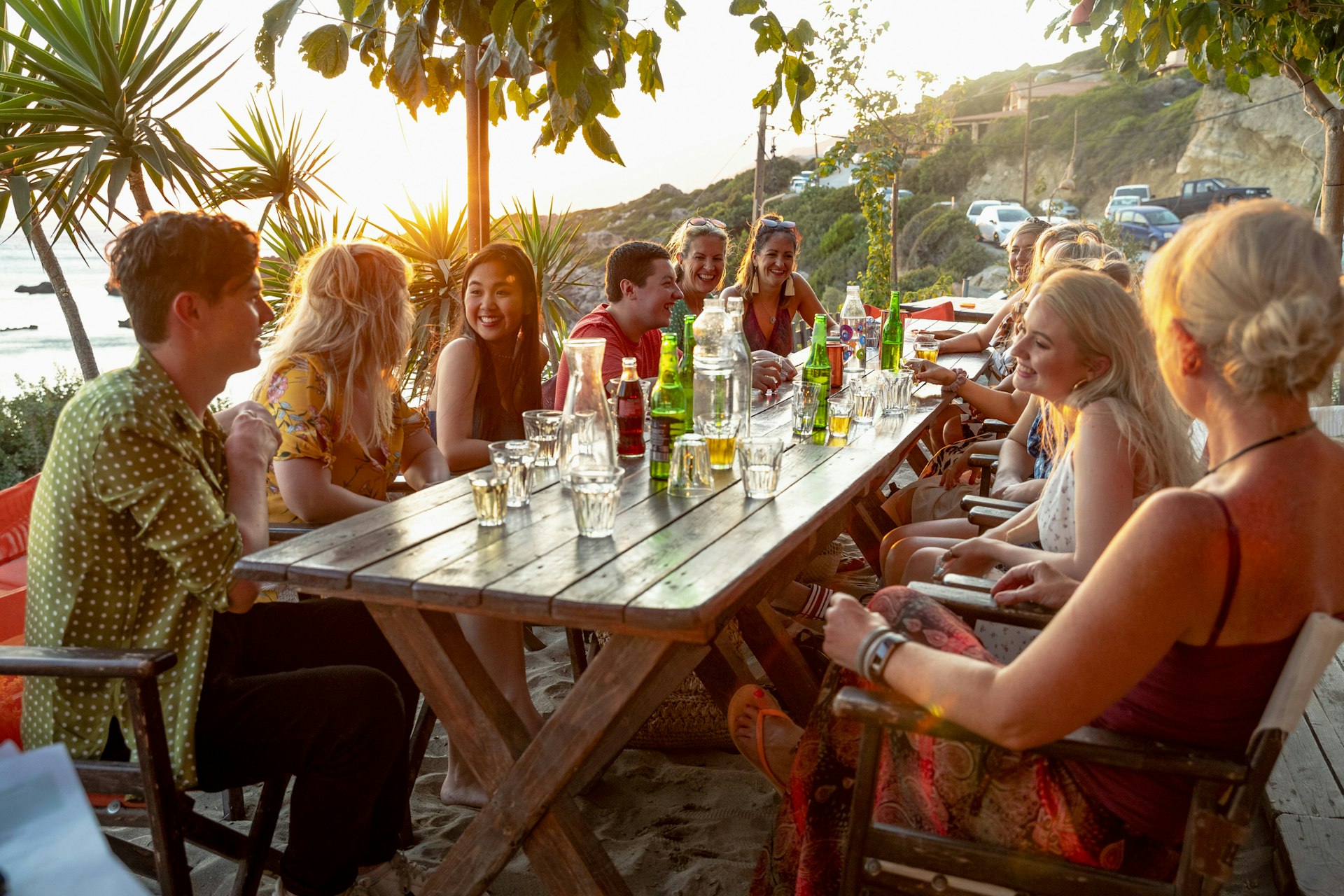
10. Carry cash and don't rely on cards or ATMs
As part of the EU, Greece uses the euro. In restaurants, a service charge is normally included in the bill, and while a tip is not expected (as it is in North America), it is always appreciated. Taxi drivers normally expect you to round up the fare, while bellhops who help you carry your luggage to your hotel room or stewards on ferries who take you to your cabin normally expect a small gratuity of between €1 and €3.
ATMs are found in every town large enough to support a bank and in almost all the tourist areas. Be aware that ATMs on the islands can lose their connection for a day or two at a time, making it impossible for anyone (locals included) to withdraw money. It’s useful to keep some backup cash just in case this happens during your visit.
Credit cards are now an accepted part of the commercial scene in Greece, although they’re often not accepted on many of the smaller islands or in small villages. Don't rely on your cards alone, and check in advance when dining or drinking if it's your only option.
11. Make sure you have good travel insurance
Although medical training is of a high standard in Greece, the public health service is underfunded. Hospitals can be overcrowded, and relatives are expected to bring in food for the patient – often a problem for solo travelers. Conditions and treatment are much better in private hospitals, which are expensive. All this means that a comprehensive travel insurance policy is essential.
There is at least one doctor on every island, and larger islands have hospitals. Pharmacies can dispense medicines that are available only on prescription in most European countries. If the situation isn't critical, it's often best to consult a pharmacist first for minor ailments.
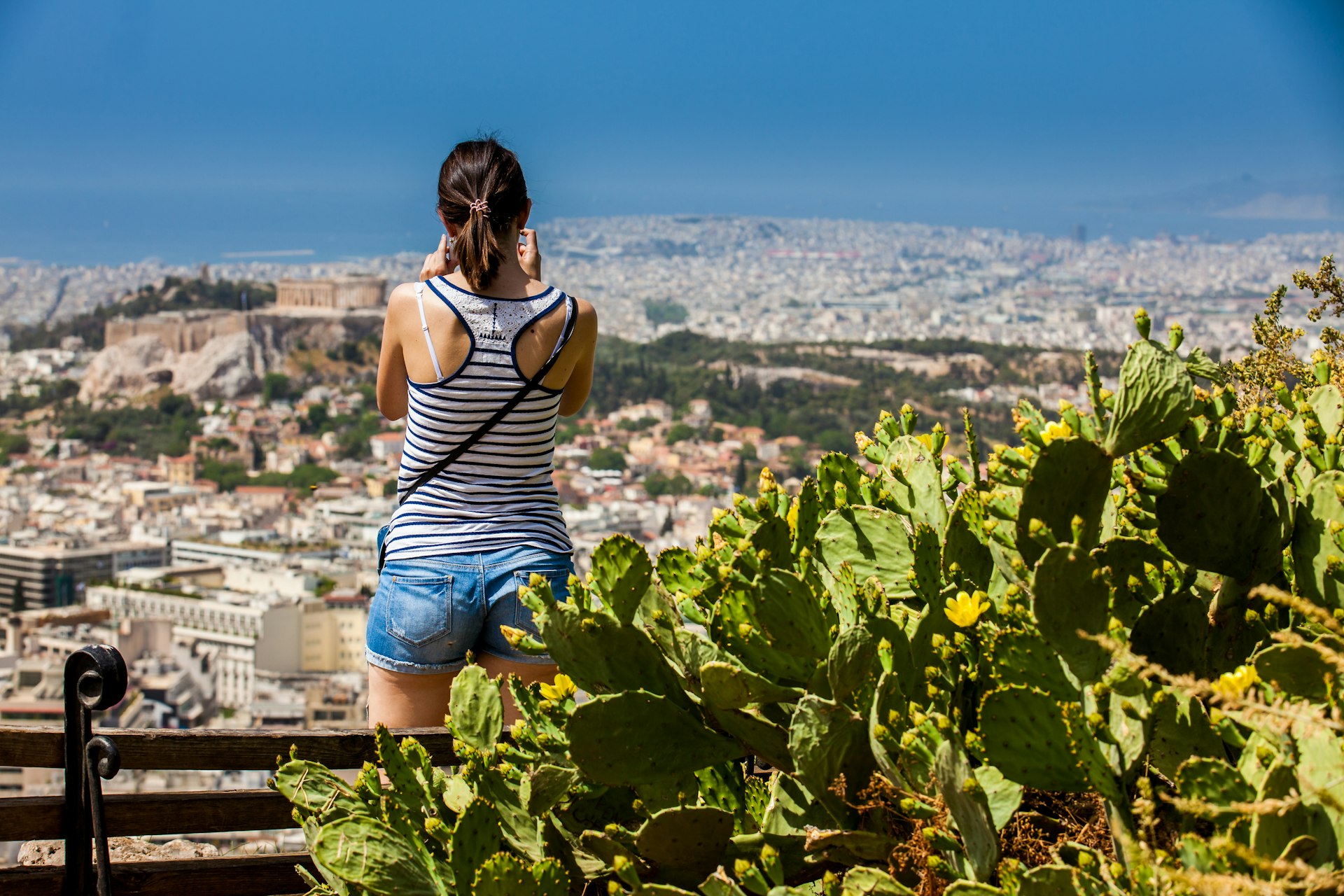
12. Stay hydrated and remember how powerful the sun can be
Tap water isn't safe to drink on many islands – if in doubt, ask. Keeping a supply of bottled water to hand is essential for hydration as well as safety; many tourists underestimate how hot it can get in Greece, and heatstroke and serious sunburn are common on beaches with little shade.
Break up your sun-drenched siestas with time in the shade getting hydrated, and pack plenty of high-factor sunscreen. Mosquitos are an irritant rather than a danger – packing insect repellant is recommended.
13. Pickpocketing and other petty crime is common in busy places
The major risks of theft in Greece are pickpockets in the large cities and theft of belongings when lounging on busy, popular beaches (leave passports behind in hotel safes). Never leave your belongings unattended, and don't leave your bags hanging from the back of your seat where you can't keep an eye on them.
The tourist police work in cooperation with the regular Greek police. Each tourist police office has at least one member of staff who speaks English. If you need to report a theft or loss of passport, go to the tourist police first, and they will act as interpreters between you and the regular police.
Some unscrupulous taxi drivers will try to charge you extortionate rates from the airports to the city centers. Always make sure the meter is running or pre-negotiate and agree on the price before you get in.
This article was first published March 2022 and updated March 2024
Explore related stories

Apr 19, 2024 • 10 min read
Summer is just around the corner in the northern hemisphere. Here's where the Lonely Planet team is going.

Mar 15, 2024 • 10 min read

Mar 4, 2024 • 6 min read
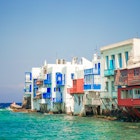
Feb 15, 2024 • 4 min read

Feb 2, 2024 • 7 min read
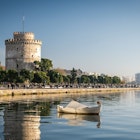
Feb 1, 2024 • 7 min read
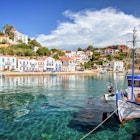
Jan 29, 2024 • 11 min read
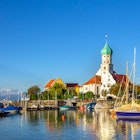
Jan 19, 2024 • 11 min read

Jan 17, 2024 • 8 min read

Jan 2, 2024 • 8 min read
Best Time to Visit
Weather & Climate
Athens International Airport Guide
Cities to Visit
Neighborhoods to Explore
Day Trips from Athens
48 Hours in Athens
Top Things to Do
Top Temple Sites
Best Beaches
Mount Olympus
Ancient Greek Theaters
Foods to Try
Top Restaurants in Athens
Best Bars in Athens
Your Trip to the Greece: The Complete Guide
Your Trip to Greece: The Complete Guide
:max_bytes(150000):strip_icc():format(webp)/FerneArfin-5b6f00c446e0fb0050324e74.jpg)
A visit to Greece can be a dream vacation as long as you know what your dream really is and plan for it. The country's beautiful beaches and world-famous archaeological sites are just two (of many!) reasons to visit Greece . But whatever your reason, use this guide to learn more about the various regions of Greece, how to travel around the country and what to expect of Greece's food, culture, and sights.
Planning Your Trip
Best Time to Visit : Spring and early fall are the best times to visit when there are fewer tourists but the sea is still warm and the weather fine for outdoor activities.
Language: Greek . English is spoken in the cities and areas popular with visitors.
Currency: Euro (€) .
Getting Around: Train service in Greece is limited. An exception is the InterCity Network run by TrainOSE that connects Athens to Thessaloniki and several other cities. Buses, including both local and intercity services, are run by regional cooperatives known as KTEL. The services are not nationally coordinated, so you need to look up KTEL for the region you plan to visit. This KTEL Macedonia website (covering the area around Thessaloniki) is typical. Athens and Thessaloniki have local and suburban public transportation systems. Athen's Metro (expanded for the Olympics) is particularly good, cheap, and clean. Hundreds of ferries connect the mainland to the islands and mainland coastal ports to each other. Private companies run the ferries, and there is no nationwide timetable. Save time and money by using the services of a Greek travel agent to book ferries and for information about buses and trains. Greek websites on these subjects are not well developed for international travelers, but agents are common in ports and city centers.
Travel Tip: Driving in Greece is not for the faint-hearted. Even though many of the highways have been improved in recent years, mountain roads can be hair raising. That, coupled with Greek driving habits, means that the country has a much higher accident rate than elsewhere in Europe.
Things to Do
Eighty percent of Greece is covered in mountains, divided into many peninsulas, and separated by canals . There are also about 6,000 islands, 227 of them inhabited, and thousands of miles of coast. Getting from one part of the country to another can be complicated so it's important to know, in advance, what you want to do and where to find it:
- Two major cities, Athens , the center of Classical Greece, and Thessaloniki , the heart of Byzantine Greece, are hubs of culture, museums, fashion, nightlife, shopping, dining, and festivals. Both are good bases for touring.
- Fragrant woodlands, dramatic mountains, olive groves and sacred sites dedicated ancient oracles and gods cover mainland Greece. Byzantine fortresses and remote monasteries perch between deep, folded mountain valleys.
- Wherever you go in Greece you'll find thousands of years of history, from the earliest signs of democracy to the temples and theaters of the ancient world as well as the remnants of the Romans and the Byzantines. The Parthenon, the Acropolis , and the Temple of Apollo at Delphi are among the most popular sites.
- The thousands of Greek islands and beaches are an essential part of Greece and Greek culture and are surprisingly easy to reach by plane or ferry. Islands like Crete , Santorini , and Kefalonia are worth a trip on their own.
What to Eat and Drink
Though the foodie scene in the cities is becoming pan-European and international, the best things to eat in Greece are still fresh and local. Octopus and kalamari (fried rings of squid) are popular taverna fare. Fresh Greek salads with feta or local cheeses, a squeeze of lemon and tangy olive oil, are part of every meal. Look for sweets flavored with mastic, a gum from evergreen trees. You may be welcomed to your hotel with a spoonful of cherry or apricot jam and a glass of water.
Take some time to stop at a kafenio (cafe) for coffee and honey-soaked Greek pastries, like baklava and kataifi , or the custard pie known as galaktoboureko . A popular outdoor coffee drink, apparently invented accidentally in Thessaloniki, is frappé. It's made of instant coffee, ice water, and sugar beaten with an electric whisk to form a foam.
The Greeks these days are producing outstanding red and white wines from vineyards in Crete and Santorini. Ouzo, flavored with aniseed, is similar to French pastis drinks. It is sweet and robust and, when added to water, turns white. It packs a lethal punch. If you have a taste for firewater, try the raw spirit made from the byproducts of winemaking. It's called raki in Crete and Tsipouro or Tsikoudia everywhere else. As far as local beers are concerned, microbreweries have caught on, and there are excellent craft beer makers. Look for Red Donkey, a fruity amber ale from Santorini.
Learn more about what to eat and drink in Greece, including the top 10 dishes to try in Greece and the best restaurants in Athens .
Where to Stay
Accommodations in Greece range from quirky Athens boutiques in bohemian neighborhoods like Psirri to corporate giants, like the Athens Hilton in the city center or the luxury Hotel Grande Bretagne in Syntagma Square. The area immediately west of Syntagma Square and into Monastiraki has a concentration of moderately priced three and four-star hotels.
Learn more about the best hotels in Athens, as well as top neighborhoods to visit in Athens .
Getting There
The main international airport for Greece is Athens International Airport , with connecting flights to Thessaloniki, Kalamata , and several of the islands, including Crete and Santorini. Athens Airport is on a main highway and is about 20 minutes from the city center by car or taxi (taxi fares are set by law). Car rental, pick up and drop off, is easiest to arrange at the airport. The cheapest and fastest way to get to the airport from Athens is by Metro Line 3. The airport Metro station is well marked. There are also bus services from the airport to the ports of Piraeus, Rafina, and Lavrio.
To find out more about getting to Greece, explore the best ways to get to Athens Airport , how to take the ferry from Athens to Santorini and how to avoid taxi scams in Greece .
Culture and Customs
Outside of the big cities and major tourist resorts, Greece is a relatively conservative country. In small towns and rural areas, women should dress modestly, avoiding bare shoulders, exposed bosoms, tight or very short skirts or shorts. Even in the cities, cover up before entering Greek Orthodox churches. And, if you are visiting monasteries like the ones at Meteora, don't wear trousers. If you do, the monks will give you wrap around skirts to put on over pants.
Nude and topless bathing is tolerated in many parts of Greece, and on some of the islands, like Crete and Spetses, a short walk beyond the end of a popular beach will take you to a nude beach area. But check with your hotel or a local taverna first. Nude bathing is still technically illegal. On the small islands and in more rural places, Greek families from the small mountain villages visit the beach on weekends with their families. Nude bathing that may be tolerated during the week is not allowed on weekends and school holidays.
Check out everything you need to know about nude bathing in Greece and discover Crete's best nude beach.
Money-Saving Tips
- Travel in the off-season: The most popular time to visit, with the highest prices from June to September. Visit in May or October, and the weather is reliably warm, but prices are much lower.
- Consider self-catering: That's what Europeans call vacation rentals. Efficiency apartments and small villas are usually cheaper than hotel accommodation, and you can save quite a bit by cooking some of your meals yourself.
- Rent an electric bicycle or moped: They're cheaper than rental cars and popular for getting around on islands and in coastal resorts. Just be careful. They are very noisy, and you may not be aware of traffic coming up behind you.
- Take advantage of what's free: Most museums and historical attractions have free admission on certain days or for certain groups of travelers. Look up the site you're interested in on the Greek Ministry of Culture & Sports website . In the left column of your attraction's listing, click on "Information," and you'll find all the free days.
Greek National Tourism Organisation . "General Info."
Greek National Tourism Organisation . "Geography."
Planning a Honeymoon in Greece: The Complete Guide
48 Hours in Athens: The Perfect Itinerary
Traveling Safely in Greece
Don't Make These 8 Common Tourist Mistakes in Greece
Top 18 Things to Do in Athens, Greece
The Towns of Santorini: The Complete Guide
How to Travel from Venice to Athens by Plane, Ferry, and Cruise
Cheap Flights to Athens
How to Travel from Athens to Santorini by Ferry and Plane
Cyclades Islands Map and Travel Guide
Santorini Map and Travel Guide
A Complete Guide to Visiting Mount Olympus
The Top 8 Greek Cities to Visit
The Greek Ferry System
The Top 20 Things to Do in Greece
How to Avoid Taxi Scams in Greece
Can you bring gum on a plane? Let’s find out!

Chewing gum is not just yummy but also helpful for travelers. A study from the American Dental Association found that gum makes your mouth produce spit, which can help your ears feel better when flying. Additionally, it can also provide a breath-freshening effect and help alleviate stress.
But, before you stash gum in your bag for your upcoming trip, it’s crucial to be aware of the regulations regarding bringing gum on an airplane. So, without any more delay, let’s uncover these rules!
Table of Contents
Can You Bring Gum On a Plane?
In accordance with TSA regulations , gum is permissible on aircraft without any quantity restrictions. However, airport security can question you if you have multiple packs of gum and it seems like you intend to sell them. You can conveniently carry gum in your personal bag such as a purse or backpack, in your carry-on baggage, or even in your pocket.
Note: If you have gum in your pocket, it could be more convenient to transfer it to your bag before reaching the security checkpoint. Alternatively, you can place it in a separate tray along with your watch and cellphone.
Not only the TSA but also many international flights permit passengers to bring gum on board. The International Civil Aviation Organization (ICAO) is a specialized association of the United Nations (responsible for establishing international air travel regulations) that does not impose restrictions on carrying chewing gum during international flights.
Nonetheless, it’s essential to consistently verify the regulations of the airline you’re traveling with. Typically, the airline will provide a list of prohibited items once you’ve booked your flight.
What About Nicotine and Flavoured Gum?
The TSA permits travelers to transport chewing gum irrespective of its varieties . Whether it’s sugarless, natural, oral, raspberry, plum, spearmint, and so forth, you can securely bring them aboard an aircraft in your carry-on and examined baggage.
You may also think about offering flavored gum to fellow passengers while on the flight, in case they forgot to bring their own or didn’t think about it. Flavored gum provides a delightful choice if you’re craving something sweet but prefer not to eat.

Mint-infused gum can be a great way to alleviate nausea and keep your breath fresh while flying, especially during extended flights when you may take a nap.
Conversely, the TSA places no limitations on smokeless nicotine items such as lozenges and gum. Travelers are permitted to have nicotine gum in their handbags, carry-on luggage, and checked bags.
You can even chew nicotine gum on the plane. It’s helpful for heavy smokers trying to avoid cigarettes or vaping during the flight. Some stores sell nicotine gum after security checks before boarding.
Related: Learn If You Can Bring Scissors on Planes
Are There Any Restrictions on Liquid Gum on a Plane?
Liquid gum encompasses chewing gum varieties containing a liquid core that releases flavors or substances during chewing, such as energy gum, nicotine gum, or bubble gum. In the context of air travel, liquid gum is categorized as a liquid and is subject to the same hand luggage restrictions as other liquid items.
When carrying liquid-form candy or gum items like squeezable candy tubes (e.g., Hubba Bubba Squeeze Pop), spray candy or liquid candy tubes, it’s important to adhere to the TSA 3-1-1 liquids rule . This rule mandates that all liquids and gels in your carry-on must be contained in 3.4-ounce (100 ml) containers or smaller and these containers must fit into a single quart-sized plastic bag.
In Which Nations Chewing Gum are Prohibited?
While certain airlines might offer free gum to their passengers, others may forbid or discourage the consumption of gum while onboard.
For example, in 1992, Singapore implemented a ban on the import and sale of chewing gum. This decision was made to address the issue of littered streets and to combat a series of incidents in which chewing gum had been affixed to the door sensors of MRT (subway) carriages, leading to delays and financial challenges for the government.

In 2004, following the enactment of the United States-Singapore Free Trade Agreement , Singapore permitted the sale of medicinal gum which includes sugar-free/dental gum and nicotine gum. However, it will apply only if prescribed by a dentist or doctor. Singapore isn’t the sole nation with limitations on chewing gum.
While gum is not prohibited in Japan, it is considered extremely impolite to chew gum when in the company of an older person or someone of higher rank. So, keep in mind this etiquette if you plan to visit Japan.
Suggested Reading: How many people can travel in 1 Aeroplane? [Latest Seats Analyzed]
What’s the Purpose of Chewing Gum While Flying?
Chewing gum during a flight serves a purpose beyond simply avoiding bad breath. Some believe that chewing gum while in the air can assist in equalizing pressure in the ears. If you’re a scuba diver, the concept of ”equalizing” may sound familiar to you.
When we ascend and descend during a flight, the atmospheric pressure undergoes shifts. These alterations have an impact on our ears and sinuses. So, it becomes necessary for us to engage in a process called “equalizing” to harmonize the air pressure within our ears. The act of chewing, or mastication initiates the opening of the Eustachian tubes which helps in alleviating discomfort and preventing barotrauma.
Editor’s Pick: How to Unclog Ears After Flying With a Cold? [New Methods 2023]
Should You Bring Gum On a Plane?

The decision to bring chewing gum while flying or not is contingent on individual preferences and the intended purpose. Some people may chew gum during flights for reasons such as promoting oral hygiene, alleviating stress, or boosting focus. Gum chewing contributes to preventing dental decay, refreshing breath, and stimulating saliva production which mitigates the risk of dry mouth and throat.
Moreover, it has the potential to reduce cortisol levels linked to stress and anxiety while enhancing alertness and cognitive abilities. Nevertheless, there are downsides and potential risks associated with chewing gum during air travel, including:
- Risk of choking : Chewing gum can be a choking hazard if it gets stuck in the throat or blocks the airway. This risk is especially dangerous if you fall asleep while chewing gum or have a medical condition that affects your ability to swallow.
- You Can’t Throw it in a Plane : It is rude and disrespectful to throw chewing gum around in any confined environment, including a plane. Imagine you are chewing the gum and you want to spit it out, you really can’t do that unless you have a small tissue around you.
Before packing gum for your trip, it’s essential to consult your travel authorities and airline to ensure compliance with their regulations. Additionally, it’s important to be considerate of both your fellow passengers and the flight crew by disposing of your gum responsibly and refraining from littering.
Read Next: How to Add TSA Precheck to American Airlines? [Guide]
Bringing gum on a plane is generally allowed by TSA regulations, and it can serve multiple purposes for travelers, from alleviating ear discomfort to freshening breath and reducing stress. Various types of gum, including flavored and nicotine gum, are permitted in both carry-on and checked luggage. However, travelers should be aware of liquid gum restrictions and adhere to the 3-1-1 liquids rule for such products. Additionally, it’s crucial to respect the regulations and etiquette of the airline and destination country. While gum can offer benefits during air travel, travelers should also be mindful of potential risks, such as choking hazards and proper disposal, to ensure a pleasant journey for everyone.
Can you bring gum on a plane? - FAQs
YES, Chewing gum during a flight is allowed by all airlines.
Yes, you can bring flavored or nicotine gum on international flights in your carry-on or checked baggage. The International Civil Aviation Organization (ICAO) does not impose restrictions on carrying chewing gum during international flights.
Chewing gum during a flight can serve multiple purposes, including helping to equalize pressure in the ears as the plane ascends and descends. It can also freshen your breath, promote oral hygiene, and alleviate stress. Additionally, flavored gum can provide a pleasant alternative for those seeking something sweet without eating.
- Editor in Chief |
Related Articles

Can You Text On a Plane? FAA Rules Explained

Does Rain Delay Flights? Here’s The Answer

How Many Inches of Snow Will Cancel a Flight? | ANSWERED
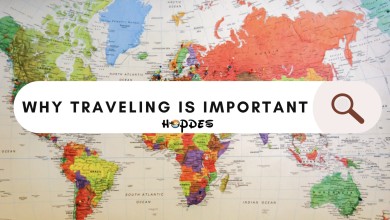
TOP 9 Reasons Why Travelling is Actually Important

Can You Bring Cigarettes On a Plane? Latest TSA Guide

14 Hotels You Can Book at 18 – Guide for Young Travelers
Leave a reply cancel reply.
Your email address will not be published. Required fields are marked *
Save my name, email, and website in this browser for the next time I comment.
Travel-Gum Uses, Dosage, Side Effects, Food Interaction and all others data.
Dimehydrinate was first described in the literature in 1949, and patented in 1950. Early research into dimenhydrinate focused on its role as an antihistamine for urticaria; the treatment of motion sickness was an accidental discovery.
Travel-Gum, also known as B-dimethylaminoethyl benzohydrol ether 8-chlorotheophyllinate, is indicated to prevent nausea, vomiting, and dizziness caused by motion sickness. Travel-Gum is a combination of Diphenhydramine and 8-chlorotheophylline in a salt form, with 53%-55.5% dried diphenhydramine, and 44%-47% died 8-chlorotheophylline.
The antiemetic properties of dimenhydrinate are primarily thought to be produced by diphenhydramine's antagonism of H1 histamine receptors in the vestibular system while the excitatory effects are thought to be produced by 8-chlorotheophylline's adenosine receptor blockade.
Table Of contents
- Side Effect
- Precautions
- Interactions
- Uses during Pregnancy
- Uses during Breastfeeding
- Accute Overdose
Food Interaction
Volume of distribution.
- Interaction With other Medicine
- Contradiction
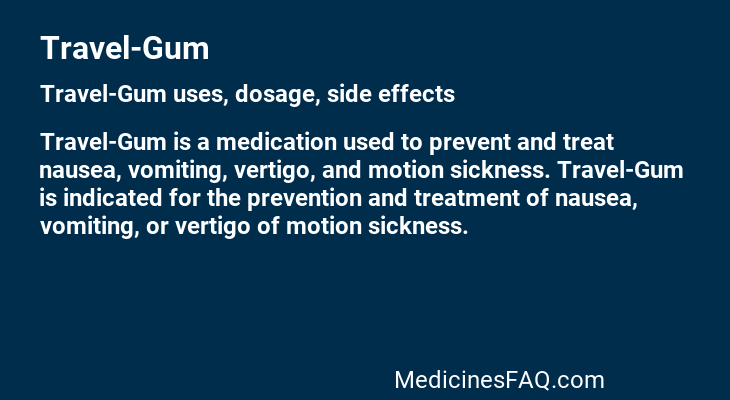
Travel-Gum is a medication used to prevent and treat nausea, vomiting, vertigo, and motion sickness.
Travel-Gum is indicated for the prevention and treatment of nausea, vomiting, or vertigo of motion sickness.
Travel-Gum is also used to associated treatment for these conditions: Dizziness , Labyrinthine disorder , Menière's Disease , Morning Sickness , Motion Sickness , Nausea , Nausea and vomiting , Post Operative Nausea and Vomiting (PONV) , Vomiting , Radiation therapy induced nausea and vomiting
How Travel-Gum works
Travel-Gum is a theoclate salt that separates into diphenhydramine and 8-chlorotheophylline. While the exact mechanism of action is unknown, diphenhydramine is theorized to reduce disturbances to equilibrium through antimuscarinic effects or histamine H1 antagonism. 8-chlorotheophylline may produce excitation through blocking adenosine receptors, reducing the drowsiness produced by diphenhydramine.
Infants and children experiencing an overdose may lead to hallucinations, convulsions, or death. Adults experiencing an overdose may present with drowsiness, convulsions, coma, or respiratory depression. Treat overdoses with symptomatic and supportive measures including mechanically assisted ventilation.
In mice the oral LD 50 is 203 mg/kg, while in rats it is 1320 mg/kg. The intraperitoneal LD 50 in mice is 149 mg/kg.
- Avoid alcohol.
Travel-Gum Alcohol interaction
[Moderate] GENERALLY AVOID:
Use of anticholinergic agents with alcohol may result in sufficient impairment of attention so as to render driving and operating machinery more hazardous.
In addition, the potential for abuse may be increased with the combination.
The mechanism of interaction is not established but may involve additive depressant effects on the central nervous system.
No effect of oral propantheline or atropine on blood alcohol levels was observed in healthy volunteers when administered before ingestion of a standard ethanol load.
However, one study found impairment of attention in subjects given atropine 0.5 mg or glycopyrrolate 1 mg in combination with alcohol.
Alcohol should generally be avoided during therapy with anticholinergic agents.
Patients should be counseled to avoid activities requiring mental alertness until they know how these agents affect them.
Travel-Gum Drug Interaction
Moderate: lorazepam , lorazepam , diphenhydramine , diphenhydramine , pregabalin , pregabalin , acetaminophen / codeine , acetaminophen / codeineUnknown: aspirin , aspirin , omega-3 polyunsaturated fatty acids , omega-3 polyunsaturated fatty acids , acetaminophen , acetaminophen , cyanocobalamin , cyanocobalamin , ascorbic acid , ascorbic acid , cholecalciferol , cholecalciferol
Travel-Gum Disease Interaction
Major: prematurityModerate: anticholinergic effects , asthma/COPD , cardiovascular , renal/liver disease
The volume of distribution of dimenhydrinate is 3-4 L/kg.
Elimination Route
A 50 mg oral film coated tablet reaches a C max of 72.6 ng/mL with a T max of 2.7 hours. A 100 mg suppository reaches a C max of 112.2 ng/mL with a T max of 5.3 hours.
The plasma elimination half life of dimenhydrinate is 5-8 hours.
Travel-Gum is predominantly eliminated in the urine. 1-3% of the dissociated diphenhydramine is eliminated in the urine unchanged, while 64% of diphenhydramine is eliminated in the urine as metabolites. The elimination of dimenhydrinate has not been fully studied.
Innovators Monograph
You find simplified version here Travel-Gum

Dr. Tanvir Rahman
Psychiatrist

Dr. Zahidul Islam
Child Specialist

Dr. Md. Mostofa Alam Bony
Medicine Specialist

Dr. Khondoker Monirul Alam
Gastroenterologist

Dr. Sultana Ashrafi Ahmed
Kidney Specialist

Dr. Md. Najmul Karim
Hematologist

Dr. Redwana Hossain

Dr. Md Waliur Rahman
Related Content

Can You Fly With A Vape Pen To Greece? Here’s What You Need To Know

Can You Fly With a Vape Pen To Greece?
Can you fly with a vape pen in your carry-on, are there any regulations regarding vaping in greece, what are some alternatives if i can’t bring my vape pen to greece.


Are Vape Pens Illegal in Greece?
What is a vape pen, are they legal in greece, so what does this mean for vapers in greece.

Tips for Bringing a Vape Pen on a Plane
Similar posts.

Can You Fly With A Vape Pen To Georgia? Here’s What You Need To Know

Can You Fly With A Vape Pen To Vanuatu? Find Out Here!

Can You Fly With A Vape Pen To Denmark? Here’s What You Need To Know

Can You Fly With A Vape Pen To Paraguay: The Rules & Regulations Explained

Can You Fly With A Vape Pen To Iraq? Here’s What You Need To Know

Can You Fly With A Vape Pen To The United Kingdom? Here’s What You Need To Know
Daily Sabah

- Environment
- Expat Corner
Paradise of mastic gum: Chios, a Greek wonder off coast of Türkiye
By özge şengelen.

I don't know if you like island trips, but these pockets of land surrounded by the sea make for ideal holidays. Allow me to take you to Chios, the fifth-largest island in Greece
I reached Chios, one of the easiest Greek islands to access from Türkiye, from Izmir's Çeşme Port. When viewed from Çeşme, Chios is just across the water. It was one of the islands I wanted to see the most, and after a 30-minute ferry ride I was able to wave back to Çeşme from across the water on the other side.
Chios is nick-named “the Mastic island” as it is one of the most important places in the world for the production of gum trees and mastic.
The island winks at you from a distance with its untouched coves, clear blue Aegean waters and villages that make you feel as if you are in the Middle Ages.
I recommend you visit the villages and the unspoiled beaches where you can enjoy the sea to the fullest.
Ormos, Lo Giosonas, Agia Dynami, Agia Fotia, Karfas, Komi, Mavra Volia, Nagos and Didymes are a few of the beaches you can visit on Chios. One of the most striking beaches on the island with its volcanic black stones is Mavra Volia Beach.
Agia Dynami was the cove I liked the most and enjoyed swimming in the most.
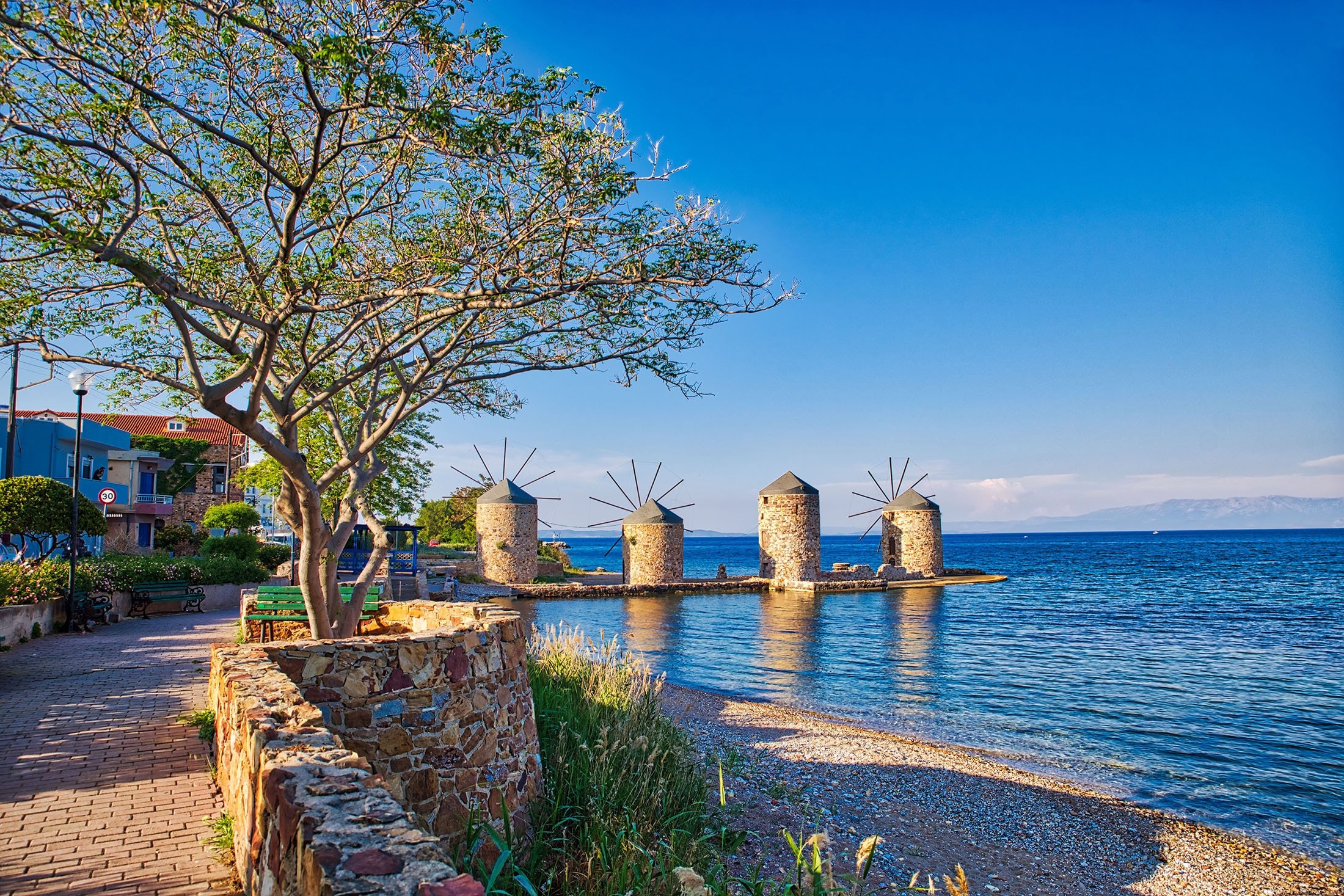
Truthfully, no matter which bay you go to in Chios, the sea will not disappoint you. There are no facilities in most of the bays, so I recommend you bring your necessities with you. But this actually made me very happy, I am very glad that the natural beauty of the bays has not been spoiled by facilities. In this sense, throwing a towel on the shores of the untouched bays before throwing myself into the deep blue waters while taking in the lush nature around me when I lift my head with every stroke gives me more pleasure.
Compared to the more popular Greek islands, Chios is not very touristic and stands out in terms of how down-to-earth it is. While walking around its narrow streets, you will see the warm smiles of the locals sitting in front of their doors chatting.
You can see traces of Chios' multicultural history across the island, which was under the rule of Alexander the Great as well as the Roman, Byzantine, Genoese and Ottoman Empires before becoming a part of Greece in 1912.
In Chios, chewing gum is a very important source of income today and there are many gum trees concentrated in the southern part of the island.
It takes a very difficult production process to develop the fragrant mastic gum, which has an array of uses. While walking around the island, you will come across some trees that have a white powder spread across the soil surrounding them. These trees are gum trees.
At the beginning of summer, the surrounding ground is cleared of weeds and a white soil made of clay is spread. Then twice a week for five to six weeks, crevices are made in the branches and trunk of the tree from where the resin is expected to flow.

After the resin is collected, it is cleaned and dried. This process, which takes quite a long time, occurs twice during the season. In other words, mastic gum can only be collected twice a year.
Chios is a must-see not only for sea lovers but also for history buffs.
The Nea Moni Monastery, Chios Archaeological Museum, Chios Mastic Museum, Argenti Folklore Museum, Panagia Krina Church, Chios Byzantine Museum and Apolichnoi Castle are some of the places worth seeing.
You can also visit Armolia, which is known for its ceramic production, Olympi with its narrow streets and Anavatos.
Chios also allures visitors with its medieval villages, where you enter through the doors that open to fairy tales and one can risk getting lost in its streets.
I will touch on two wonderful villages that make you feel like you have gone a thousand years into the past.
One of them is Mesta.
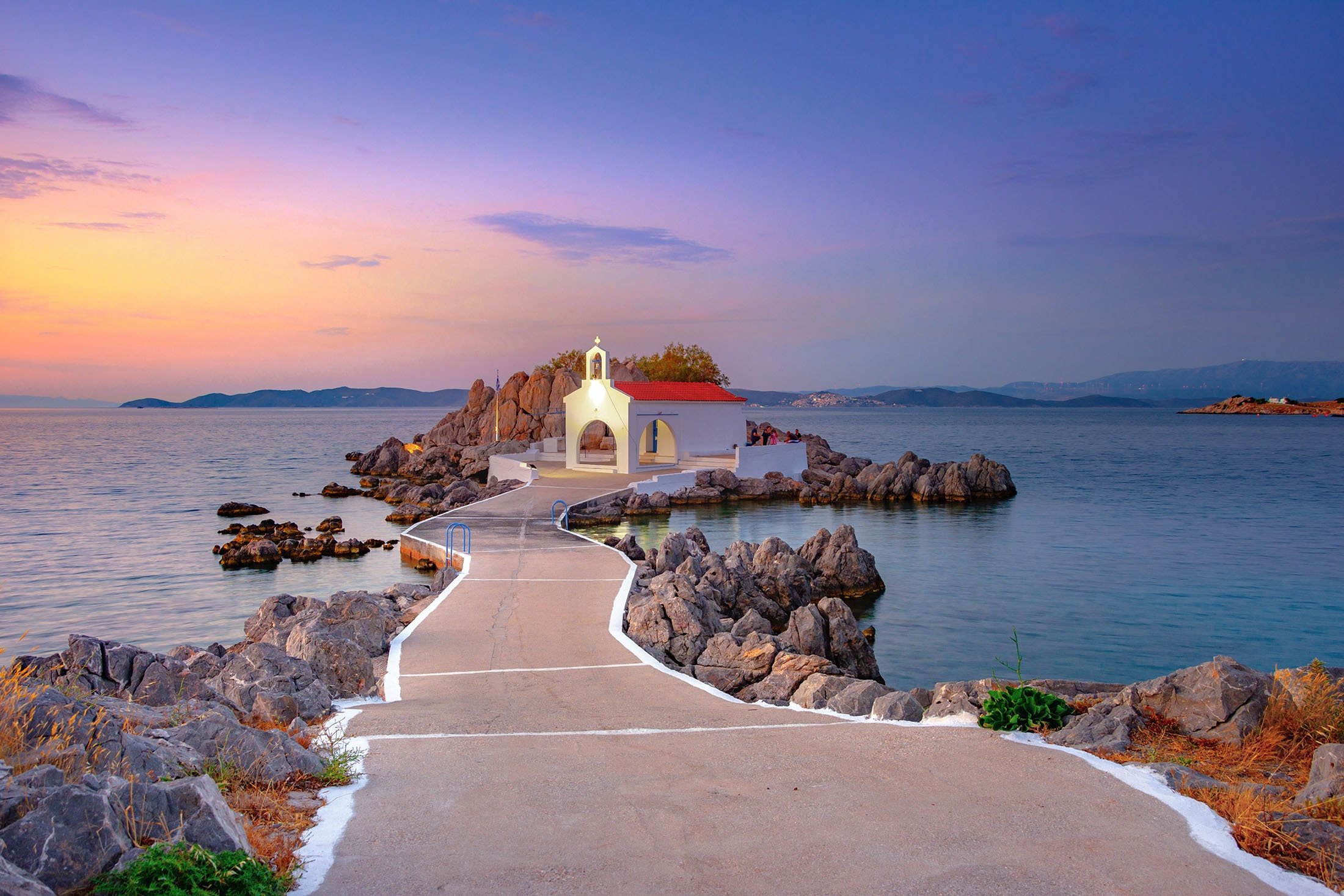
Village fortresses, pirates
Mesta is a village that I entered almost bursting through its ancient door. I love towns and villages with entrances like this. Although the village has many entrances and exits, if you want to feel like a time traveler, you can enter by using one of the two gates from the Middle Ages. These doors, which were made for defense purposes nearly a thousand years ago, open up to fairy tales today. Mesta is a village where you can easily get lost but you don’t need to worry about it. Just bask in the atmosphere.
Of course, they didn't build their narrow labyrinth streets and houses with castle-like walls positioned close together like embroidery so that we could capture magnificent shots. Here, I learned that the maze-like configuration of the streets was so pirates who came to the village would get lost and not be able to reach the important buildings in the center.
The fact that the houses are adjacent to each other without any gaps is not an example of unplanned urbanization from the Middle Ages. The design allowed the villagers to move easily and escape from the roofs of these houses during an occupation.
It is no coincidence that the exteriors of all houses look like a strong fortress.
It seems that this small village, which has been subjected to many attacks, was built like a fortress itself.

Taxiarchis Church, one of the 10 largest churches in Greece, is also one of the places you can visit in Mesta.
A cross brought from the Hagia Sophia in Istanbul and icons of angels are exhibited in the church as well as icons brought by Greek citizens from Izmir and Çeşme during the population exchange period. The historical paintings in the church and its renowned icons, particularly the two of Michael and Gabriel, attract the attention of the Christian world.
If visiting Chios, do not leave the island without going to Mesta and seeing this magnificent structure.
While there, climb the stairs leading to the tower and take a look at this labyrinth village from the top.
You can also eat at the cafes and restaurants in the village square, drink frappes and visit the shops selling local products.
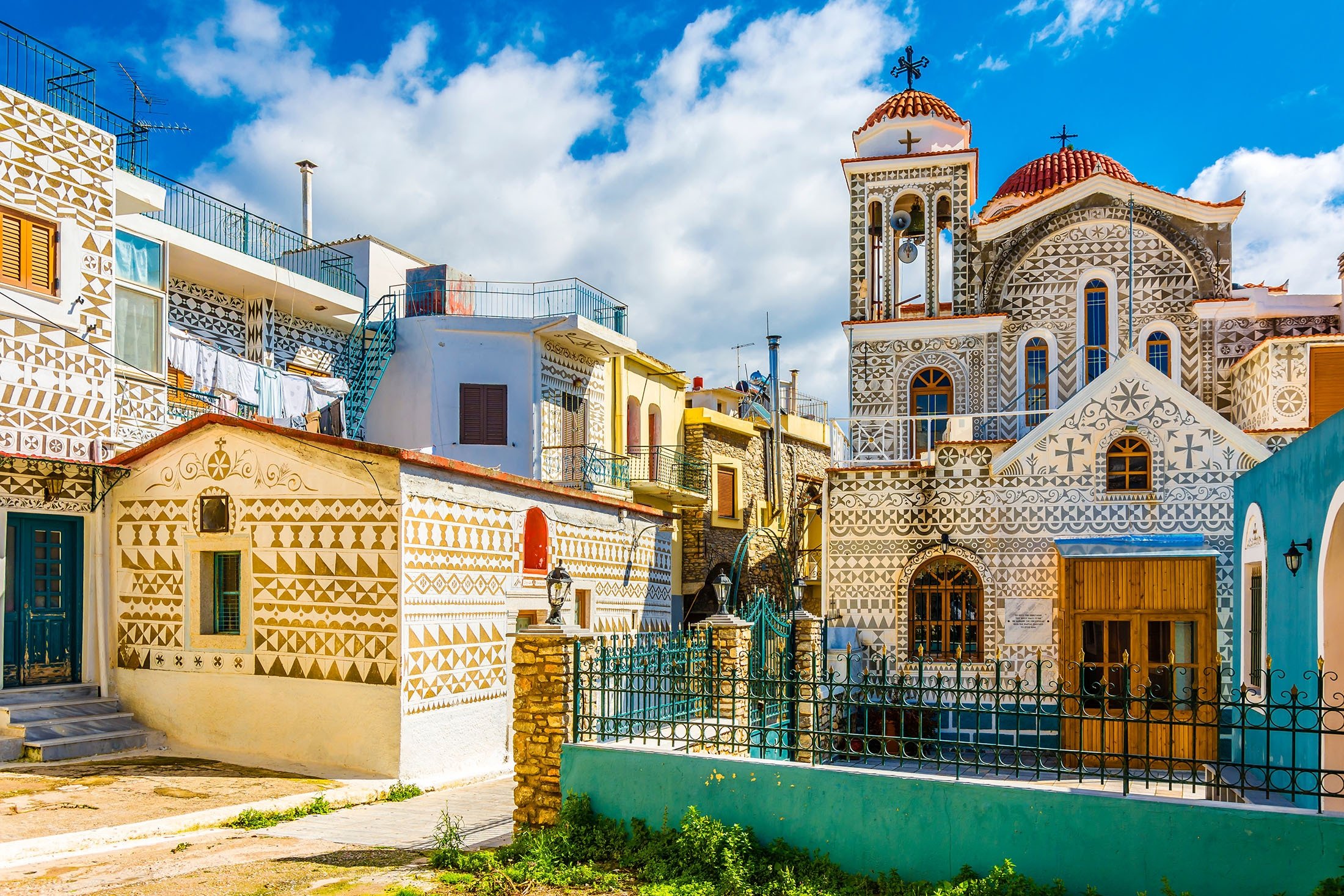
Mastic center
Another must-see on Chios is the village of Pyrgi, one of the best producers of mastic gum on the island.
In Pyrgi, the houses were built adjacent to each other just like in Mesta in case of pirate attacks but now offer a visual feast from a touristic point of view.
At the same time, almost all of the houses were constructed in the "ksista" style, which typically features black and white hand-crafted geometric motifs. While creating harmony in terms of design throughout the village, it offers photographers wonderful frames.
Chios is a place where you can't ignore the warmth of the locals sitting in front of their doors with their tomatoes hung to dry on balconies, adding even more color to the scene.
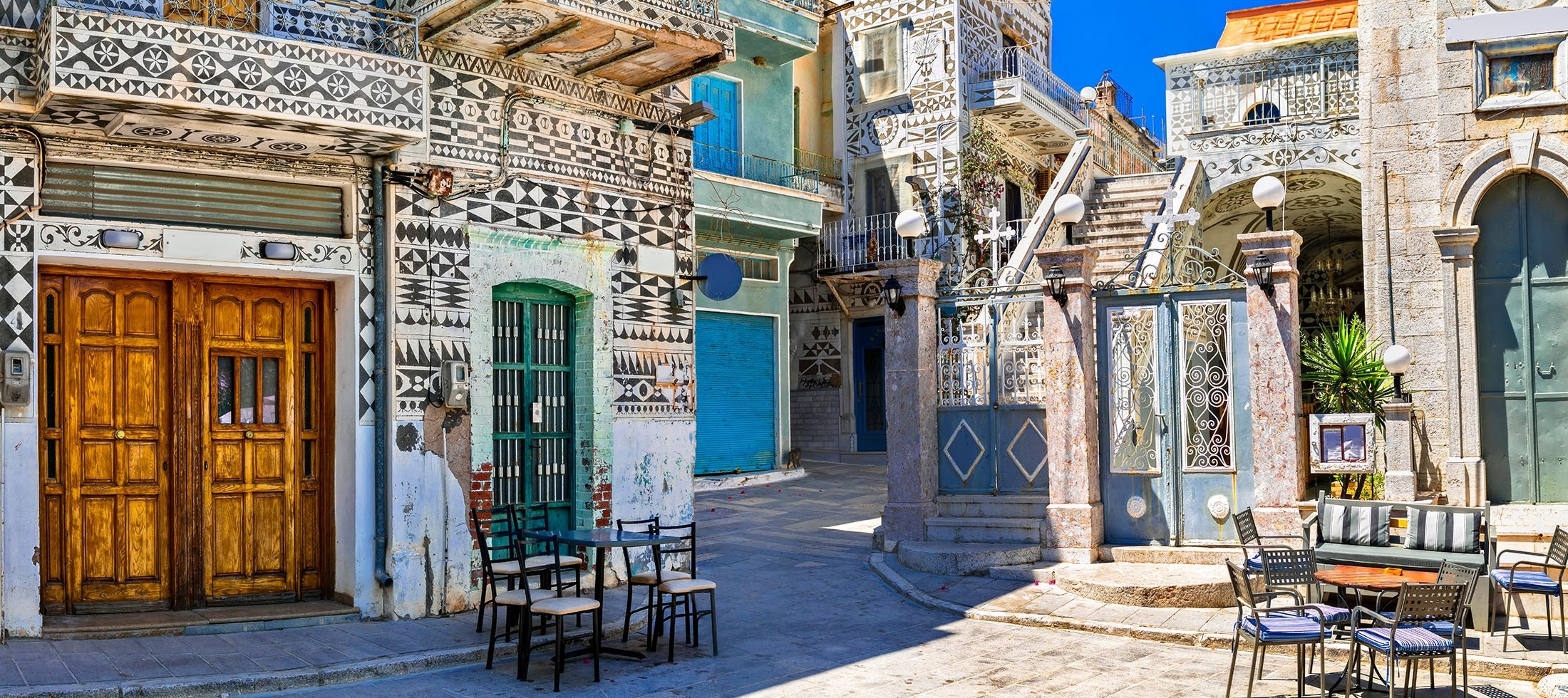
Language of love
I traveled to Chios for the first time, taking advantage of a holiday break during the bayram holiday.
While getting lost on the side streets of the island, we came face to face with a very sweet smiling grandmother on a bench in front of a house decorated in the ksista style, with her balcony adorned with dried tomatoes.
We greeted each other with our eyes.
She did not speak Turkish or English, and I did not speak Greek.
“Sit down,” she gestured with her hand.
I sat down ... We looked and laughed for a long time.
It was as if we had butterflies in our stomachs.
It was as if we were celebrating the bayram together in Chios.
I was almost going to kiss her hand and wish her a happy bayram, I would take the sweets she procured out of her pocket and fill my bag.
She pointed to the camera in my hand, I understood that she wanted to be photographed.
We took pictures together and one of my best memories of Chios was made.
I will say one thing: The feeling of love has no language.
It was possible to agree, to feel loved and love without speaking.
It was very easy to come to an understanding, to come to terms, with the language of love.
So, I returned home, having ticked off Chios from my travel list and left dreaming of a beautiful world where the power of love speaks.
- shortlink copied

- ISLAND LIFE
- türkiye


Mastiha, the Greek Superfood
Elma chewing gum is the most popular mastiha product.
ELMA Chewing Gum, is the most popular mastiha product.
ELMA chewing gum is the most popular and representative mastiha product. A synonym of authenticity, it has withstood the time passage, signaling the commitment to tradition and values of the first Greek (Ellinikí) Mastiha (EL.MA.). ELMA is the first Greek chewing gum as well as the first chewing gum with mastiha. It is the natural continuation of the first chewing gum of ancient times, which the people of the Eastern Mediterranean chewed in order to clean their teeth and to freshen their breath.
ELMA chewing gum is unique, with flavor, color and sensation that may vary from batch to batch, since it is made with natural ingredients. The distinctive aroma of mastiha is replaced by its discreet taste relatively quickly since no artificial flavoring is added. Its natural properties remain unchanged because no artificial sweeteners and antioxidants are used in its manufacture. ELMA chewing gums are gluten free.

Μastiha Fun Facts
Did you know that mastiha…, start mobile, is used as an ingredient for tooth fillings., is used for the preparation of surgical threads, which are absorbed by the body and do not require cutting procedures., in textile and cotton industries it is used as a color stabilizer for the weaving of fabrics and especially silk., is used as an ingredient for tooth fillings..

Join us at Mastiha Club
MEDITERRA S.A. will use your information in order to update you with informative e-mails and newsletters about the company’s services & offers, its news, as well as the effectiveness of its projects. Please tick the box below (Email / Newsletter) to keep in touch.
In case you have changed your mind and do not further wish to receive news from us, you can unsubscribe by clicking the "unsubscribe" link in the footer of our newsletters or by emailing us at [email protected]. All information given to us is considered confidential. For more information about our privacy policy please visit our website. By clicking the link below, you agree that we may handle the information you have provided us with, as set forth above.

Mastiha Club offers unique privileges to its members! By signing up for free you can benefit from learning about exclusive events, tastings, seminars, online or in-store promotions, competitions and new mastihashop products. The Mastiha Club concerns anyone who loves mastiha, traveling, experiences, personal care, nutrition and cooking! Soon it will offer you unique experiences and privileges!
Privacy Preferences
When you visit our website, it may store information through your browser from specific services, usually in the form of cookies. Here you can change your Privacy preferences. It is worth noting that blocking some types of cookies may impact your experience on our website and the services we are able to offer.
For performance and security reasons we use Cloudflare required Cloudflare uses the _cflb, _cf_bm, and _cfduid, cookies to maximize network resources, manage traffic, and protect our Customers’ sites from malicious traffic.
Click to enable/disable custom content. Click to enable/disable Google Analytics tracking code. Google Analytics is a tool that helps website owners measure how users interact with website content. As a user navigates between web pages, Google Analytics provides website owners JavaScript tags (libraries) to record information about the page a user has seen, for example, the URL of the page. The Google Analytics JavaScript libraries use HTTP Cookies to "remember" what a user has done on previous pages/interactions with the website.
Click to enable/disable Google Fonts. Google Fonts logs records of the CSS and the font file requests, and access to this data is kept secure. Aggregate usage numbers track how popular font families are, and are published on our analytics page. We use data from Google’s web crawler to detect which websites use Google fonts. This data is published and accessible in the Google Fonts BigQuery database. To learn more about the information Google collects and how it is used and secured, see Google's Privacy Policy.
Click to enable/disable Google Maps.
For users of Maps Embed API, Google uses anonymous cookies to determine the number of unique users of the API. Google also accumulates statistics about the types of features used from the Maps product.
Click to enable/disable video embeds. Video providers (e.g. YouTube, Vimeo) can collect user data and record information that helps measure how users interact with site content. By enabling video embeddings you agree to the terms of use stated by each provider in their privacy policy.
- Skip to main content
- Skip to "About this site"
Language selection
Search travel.gc.ca.
Help us to improve our website. Take our survey !
COVID-19: travel health notice for all travellers
Greece travel advice
Latest updates: The Need help? section was updated.
Last updated: March 25, 2024 15:14 ET
On this page
Safety and security, entry and exit requirements, laws and culture, natural disasters and climate, greece - take normal security precautions.
Take normal security precautions in Greece.
Back to top
Petty crime
Petty crime, such as pickpocketing, purse snatching and luggage theft occurs. Tourists are frequently targeted.
Organized groups of thieves often use distraction techniques and are particularly active:
- at tourist sites and attractions
- in restaurants, patios and bars
- in hotel lobbies
- on public transportation, including metro and trains to and from Athens International Airport
- at airports, bus and railway stations including Larissa and Peloponnese stations in Athens
While you’re in Greece:
- ensure that your belongings, including your passport, are secure at all times
- don’t keep your passport and other types of ID at the same place and carry a photocopy rather than the original
- avoid showing signs of affluence
- avoid carrying large sums of cash or unnecessary valuables
- pay attention to your surroundings, particularly in crowded and tourist areas
- be wary of unsolicited offers or advice from strangers
- avoid isolated areas, parks and down-market bars and restaurants, especially after dark
Violent crime
Violent crime, such as attacks committed by far-right extremists against individuals belonging to ethnic, religious or political minorities are uncommon, but do occur.
Always be vigilant and aware of your surroundings.
Spiked food and drinks
Never leave food or drinks unattended or in the care of strangers. Be wary of accepting snacks, beverages, gum or cigarettes from new acquaintances. These items may contain drugs that could put you at risk of sexual assault and robbery.
Victims of crime
If you are a victim of a crime, go to the nearest police station to report it. Keep a copy of your report, as you may need it to make a claim to your insurance provider.
If you are a victim of sexual assault:
- seek medical assistance, whether or not you appear to have been physically harmed
- contact the local police immediately and ensure they file a report
- inform consular officials at the nearest Canadian embassy or consulate
The Greek police has a dedicated unit to assist foreign tourists and offers services in English and other languages.
You can contact the tourism police 24/7 anywhere in Greece by dialling the 1571 or the regular police at 100.
Credit card and ATM fraud occurs.
When using debit or credit cards:
- pay careful attention when your cards are being handled by others
- use ATMs located in public areas or inside a bank or business
- avoid using card readers with an irregular or unusual feature
- cover the keypad with one hand when entering your PIN
- check for any unauthorized transactions on your account statements
Overseas fraud
There is a threat of terrorism in Europe. Terrorists have carried out attacks in several European cities. Terrorist attacks could occur at any time.
Targets could include:
- government buildings, including schools
- places of worship
- airports and other transportation hubs and networks
- public areas such as tourist attractions, restaurants, bars, coffee shops, shopping centres, markets, hotels and other sites frequented by foreigners
Be particularly vigilant if attending:
- sporting events
- religious holidays
- other public celebrations
Terrorists have used such occasions to mount attacks.
Extremist groups and organizations have used improvised explosive devices, bombs and arson attacks in urban areas to target:
- the Greek State and its institutions
- foreign commercial and diplomatic interests
- ethnic, religious and migrants’ centers and organizations
While tourists are not specifically targeted, you could find yourself in the wrong place at the wrong time.
Demonstrations and strikes
Demonstrations.
Demonstrations take place regularly, particularly in Athens and Thessaloniki. They are usually held on days of social or historical significance, such as:
- Workers' Day on May 1
- the commemoration of the Athens Polytechnic uprising of 1973 on November 17
- the commemoration of the riots of 2008 on December 6
In Athens, demonstrations and marches occur primarily in areas around:
- Syntagma Square, in front of the Greek Parliament
- Omonia Square
- the National Technical University complex on Patision Avenue
- Exarchia neighbourhood
In Thessaloniki, they occur primarily in areas around:
- Aristotelous Square
- Egnatia Street
- the Arch of Galerius
- the campus of the Aristotle University
Even peaceful demonstrations can turn violent at any time. Demonstrations and strikes can also lead to disruptions to traffic and public transportation.
- Avoid areas where demonstrations and large gatherings are taking place
- Follow the instructions of local authorities
- Monitor local media for information on ongoing demonstrations
Strikes and pressure tactics occur regularly, particularly in key sectors such as transport and public health services. These strikes can disrupt travel and public services.
- Consult local media to be aware of strikes that may affect your stay or travel plans
- In the event of a transport strike, plan extra time to get to your destination
Mass gatherings (large-scale events)
Women's safety
Foreigners have been sexually assaulted, most often on the islands.
Don’t accept rides from strangers or casual acquaintances.
Advice for women travellers
Water activities
Many beaches in Greece are supervised and enforce excellent safety procedures.
However, tidal changes and strong winds can cause hazardous currents and riptides.
Coral, urchin, jellyfish and other aquatic life found along reefs can poison, sting or cause infection if touched or stepped on.
- Always obey warning flags at beaches
- Ask local authorities about the presence of dangerous species and immediately seek medical assistance if you get hurt
- Wear reef shoes to protect yourself against stone and coral cuts or urchin stings
- Keep a safe distance from boats and restricted areas
- Avoid visiting beaches or coastal areas during periods of severe weather warnings
- Look out for signs warning of cliff erosion and falling rocks
- Don’t dive into unknown waters, as hidden rocks or shallow depths can cause serious injury or death
- Exercise caution and follow the advice of the local authorities
Recreational boating
If you are planning to go boating:
- know the capacity of your boat and don’t exceed it
- know and respect the navigation rules
- follow safe practices for all activities on the water
- keep a safe distance from areas reserved for certain activities such as snorkeling
- carry a VHF marine radio that will generate your position in case of emergency
- be prepared for emergencies
Water safety abroad
Outdoor activities, such as hiking, can be dangerous if unprepared. Trails are not always marked, and weather conditions can change rapidly, even in summer.
If you intend to go hiking or mountaineering:
- never do so alone, and do not part with your hiking companions
- obtain detailed information on your activity and on the environment in which you will be before setting out
- buy travel insurance that includes helicopter rescue and medical evacuation
- ensure that your physical condition is good enough to meet the challenges of your activity
- avoid venturing off marked trails
- ensure that you’re adequately equipped and bring sufficient water
- stay informed about weather and other conditions that may pose a hazard
- be aware of the presence of dangerous species such as snakes
- inform a family member or friend of your itinerary
- dial 112 from a cellphone for any emergency
Road safety
Road conditions and road safety can vary greatly throughout the country.
Severe traffic congestion and difficult terrain may lead to hazardous driving conditions.
Accidents causing fatalities are common. Drivers often drive at excessive speeds and are reckless.
Drivers and speeding motorbikes don’t always yield to pedestrians or bicycles. Exercise caution when walking, crossing streets or biking.
Accidents involving tourists renting motorbikes, scooters or mopeds are common, especially on the islands.
Small, unlicensed rental agencies do not always offer vehicles that comply with up-to-date safety standards.
- Read the rental contract carefully
- Inspect the equipment before renting it
- Never drink and drive
- Reduce your speed on rough and uneven terrain
- In the event of an accident, wait for police to arrive
You may not be able to file an insurance claim without a police report.
Public transportation
Public transportation is generally safe and reliable. The bus network is extensive, and train services connect certain major cities. Athens has a modern metro system. Strikes may sometimes affect transportation services.
Taxis are generally safe. Metered taxis are widely available.
There are fixed rates for transportation to and from Athens International Airport. Confirm the rate before departure.
Ferries between mainland Greece and its islands meet European safety standards.
Weather conditions and strong winds can lead to cancellations or significant delays. Rough sea conditions may cause motion sickness, particularly on high-speed ferries.
- Pay attention to pre-departure notices from your carrier
- Always reconfirm departure schedule before heading to the port
We do not make assessments on the compliance of foreign domestic airlines with international safety standards.
Information about foreign domestic airlines
Every country or territory decides who can enter or exit through its borders. The Government of Canada cannot intervene on your behalf if you do not meet your destination’s entry or exit requirements.
We have obtained the information on this page from the Greek authorities. It can, however, change at any time.
Verify this information with the Foreign Representatives in Canada .
- Schengen area
Greece is a Schengen area country. Canadian citizens do not need a visa for travel to countries within the Schengen area. However, visa-free travel only applies to stays of up to 90 days in any 180-day period. Stays are cumulative and include visits to any Schengen area country.
If you plan to stay in the Schengen area for a longer period of time, you will need a visa. You must contact the high commission or embassy of the country or countries you are travelling to and obtain the appropriate visa(s) prior to travel.
Useful links
- Foreign Representatives in Canada
Entry requirements vary depending on the type of passport you use for travel.
Before you travel, check with your transportation company about passport requirements. Its rules on passport validity may be more stringent than the country’s entry rules.
Regular Canadian passport
Your passport must be valid for at least 3 months beyond the date you expect to leave the Schengen area.
Passport for official travel
Different entry rules may apply.
Official travel
Passport with “X” gender identifier
While the Government of Canada issues passports with an “X” gender identifier, it cannot guarantee your entry or transit through other countries. You might face entry restrictions in countries that do not recognize the “X” gender identifier. Before you leave, check with the closest foreign representative for your destination.
Other travel documents
Different entry rules may apply when travelling with a temporary passport or an emergency travel document. Before you leave, check with the closest foreign representative for your destination.
- Foreign Representatives in Canada
- Canadian passports
Tourist visa: not required for stays up to 90 days in any 180-day period Business visa: not required for stays up to 90 days in any 180-day period Work visa: required Student visa: required
If you must stay in Greece longer than 90 days due to serious and unforeseen events, such as a medical emergency, you may be able to seek an extension of your stay as a visitor.
Present your request to the office of the Greek police on aliens’ issues at least 15 days before your 90-day, visa-free period expires.
Yellow fever
Learn about potential entry requirements related to yellow fever (vaccines section).
Children and travel
Learn more about travelling with children .
Relevant Travel Health Notices
- Global Measles Notice - 13 March, 2024
- COVID-19 and International Travel - 13 March, 2024
This section contains information on possible health risks and restrictions regularly found or ongoing in the destination. Follow this advice to lower your risk of becoming ill while travelling. Not all risks are listed below.
Consult a health care professional or visit a travel health clinic preferably 6 weeks before you travel to get personalized health advice and recommendations.
Routine vaccines
Be sure that your routine vaccinations , as per your province or territory , are up-to-date before travelling, regardless of your destination.
Some of these vaccinations include measles-mumps-rubella (MMR), diphtheria, tetanus, pertussis, polio, varicella (chickenpox), influenza and others.
Pre-travel vaccines and medications
You may be at risk for preventable diseases while travelling in this destination. Talk to a travel health professional about which medications or vaccines may be right for you, based on your destination and itinerary.
Yellow fever is a disease caused by a flavivirus from the bite of an infected mosquito.
Travellers get vaccinated either because it is required to enter a country or because it is recommended for their protection.
- There is no risk of yellow fever in this country.
Country Entry Requirement*
- Proof of vaccination is not required to enter this country.
Recommendation
- Vaccination is not recommended.
* It is important to note that country entry requirements may not reflect your risk of yellow fever at your destination. It is recommended that you contact the nearest diplomatic or consular office of the destination(s) you will be visiting to verify any additional entry requirements.
About Yellow Fever
Yellow Fever Vaccination Centres in Canada
Measles is a highly contagious viral disease. It can spread quickly from person to person by direct contact and through droplets in the air.
Anyone who is not protected against measles is at risk of being infected with it when travelling internationally.
Regardless of where you are going, talk to a health care professional before travelling to make sure you are fully protected against measles.
Hepatitis B is a risk in every destination. It is a viral liver disease that is easily transmitted from one person to another through exposure to blood and body fluids containing the hepatitis B virus. Travellers who may be exposed to blood or other bodily fluids (e.g., through sexual contact, medical treatment, sharing needles, tattooing, acupuncture or occupational exposure) are at higher risk of getting hepatitis B.
Hepatitis B vaccination is recommended for all travellers. Prevent hepatitis B infection by practicing safe sex, only using new and sterile drug equipment, and only getting tattoos and piercings in settings that follow public health regulations and standards.
Coronavirus disease (COVID-19) is an infectious viral disease. It can spread from person to person by direct contact and through droplets in the air.
It is recommended that all eligible travellers complete a COVID-19 vaccine series along with any additional recommended doses in Canada before travelling. Evidence shows that vaccines are very effective at preventing severe illness, hospitalization and death from COVID-19. While vaccination provides better protection against serious illness, you may still be at risk of infection from the virus that causes COVID-19. Anyone who has not completed a vaccine series is at increased risk of being infected with the virus that causes COVID-19 and is at greater risk for severe disease when travelling internationally.
Before travelling, verify your destination’s COVID-19 vaccination entry/exit requirements. Regardless of where you are going, talk to a health care professional before travelling to make sure you are adequately protected against COVID-19.
The best way to protect yourself from seasonal influenza (flu) is to get vaccinated every year. Get the flu shot at least 2 weeks before travelling.
The flu occurs worldwide.
- In the Northern Hemisphere, the flu season usually runs from November to April.
- In the Southern Hemisphere, the flu season usually runs between April and October.
- In the tropics, there is flu activity year round.
The flu vaccine available in one hemisphere may only offer partial protection against the flu in the other hemisphere.
The flu virus spreads from person to person when they cough or sneeze or by touching objects and surfaces that have been contaminated with the virus. Clean your hands often and wear a mask if you have a fever or respiratory symptoms.
Malaria is a serious and sometimes fatal disease that is caused by parasites spread through the bites of mosquitoes. Limited malaria transmission may occur in this destination, but risk to travellers is very low. Antimalarial medication is not recommended for most travellers. Consult a health care professional or visit a travel health clinic before travelling to discuss your options. It is recommended to do this 6 weeks before travel, however, it is still a good idea any time before leaving. Protect yourself from mosquito bites at all times:
- Cover your skin and use an approved insect repellent on uncovered skin.
- Exclude mosquitoes from your living area with screening and/or closed, well-sealed doors and windows.
- Use insecticide-treated bed nets if mosquitoes cannot be excluded from your living area.
- Wear permethrin-treated clothing.
If you develop symptoms similar to malaria when you are travelling or up to a year after you return home, see a health care professional immediately. Tell them where you have been travelling or living.
In this destination, rabies may be present in some wildlife species, including bats. Rabies is a deadly disease that spreads to humans primarily through bites or scratches from an infected animal.
If you are bitten or scratched by an animal while travelling, immediately wash the wound with soap and clean water and see a health care professional.
Before travel, discuss rabies vaccination with a health care professional. It may be recommended for travellers who will be working directly with wildlife.
Safe food and water precautions
Many illnesses can be caused by eating food or drinking beverages contaminated by bacteria, parasites, toxins, or viruses, or by swimming or bathing in contaminated water.
- Learn more about food and water precautions to take to avoid getting sick by visiting our eat and drink safely abroad page. Remember: Boil it, cook it, peel it, or leave it!
- Avoid getting water into your eyes, mouth or nose when swimming or participating in activities in freshwater (streams, canals, lakes), particularly after flooding or heavy rain. Water may look clean but could still be polluted or contaminated.
- Avoid inhaling or swallowing water while bathing, showering, or swimming in pools or hot tubs.
Insect bite prevention
Many diseases are spread by the bites of infected insects such as mosquitoes, ticks, fleas or flies. When travelling to areas where infected insects may be present:
- Use insect repellent (bug spray) on exposed skin
- Cover up with light-coloured, loose clothes made of tightly woven materials such as nylon or polyester
- Minimize exposure to insects
- Use mosquito netting when sleeping outdoors or in buildings that are not fully enclosed
To learn more about how you can reduce your risk of infection and disease caused by bites, both at home and abroad, visit our insect bite prevention page.
Find out what types of insects are present where you’re travelling, when they’re most active, and the symptoms of the diseases they spread.
Animal precautions
Some infections, such as rabies and influenza, can be shared between humans and animals. Certain types of activities may increase your chance of contact with animals, such as travelling in rural or forested areas, camping, hiking, and visiting wet markets (places where live animals are slaughtered and sold) or caves.
Travellers are cautioned to avoid contact with animals, including dogs, livestock (pigs, cows), monkeys, snakes, rodents, birds, and bats, and to avoid eating undercooked wild game.
Closely supervise children, as they are more likely to come in contact with animals.
Person-to-person infections
Stay home if you’re sick and practise proper cough and sneeze etiquette , which includes coughing or sneezing into a tissue or the bend of your arm, not your hand. Reduce your risk of colds, the flu and other illnesses by:
- washing your hands often
- avoiding or limiting the amount of time spent in closed spaces, crowded places, or at large-scale events (concerts, sporting events, rallies)
- avoiding close physical contact with people who may be showing symptoms of illness
Sexually transmitted infections (STIs) , HIV , and mpox are spread through blood and bodily fluids; use condoms, practise safe sex, and limit your number of sexual partners. Check with your local public health authority pre-travel to determine your eligibility for mpox vaccine.
Medical services and facilities
Health care is adequate, but varies throughout the country.
Facilities are generally good in cities such as Athens and Thessaloniki and in towns that have large hospitals, such as Heraklion, Ioannina and Patras.
If you’re travelling to smaller islands or to remote areas, you may need a medical evacuation to a central hospital, in the event of serious illness or injury.
Make sure you get travel insurance that includes coverage for medical evacuation and hospital stays.
Travel health and safety
Keep in Mind...
The decision to travel is the sole responsibility of the traveller. The traveller is also responsible for his or her own personal safety.
Be prepared. Do not expect medical services to be the same as in Canada. Pack a travel health kit , especially if you will be travelling away from major city centres.
You must abide by local laws.
Learn about what you should do and how we can help if you are arrested or detained abroad .
Transfer to a Canadian prison
Canada and Greece are signatories to the Convention on the Transfer of Sentenced Persons. This enables a Canadian imprisoned in Greece to request a transfer to a Canadian prison to complete a sentence. The transfer requires the agreement of both Canadian and Greece authorities.
This process can take a long time, and there is no guarantee that the transfer will be approved by either or both sides.
Penalties for possession, use or trafficking of illegal drugs are severe. Convicted offenders can expect prison sentences and heavy fines.
Drugs, alcohol and travel
Identification
Local police may ask to see your identification at any time.
- Carry adequate identification at all times, such as your passport or residence permit
- Keep a photocopy of your passport in a safe place, in case it is lost or stolen
Photography
There are restrictions on photographing and filming:
- military installations and military personnel
- border areas
- harbours, airports and other transportation hubs
- churches, monasteries and monks
In and around these areas, you should always:
- verify if photography is allowed or if a special permit is required
- request permission if individuals are involved
- refrain from photographing or filming if in doubt
- comply with all requests from local authorities
Recreational and commercial flying of drones is regulated.
You must register your drone to use it across the European Union. If you don’t comply, you may be fined and your drone confiscated.
- Information to visitors concerning drones - Hellenic Civil Aviation Authority (HCAA)
- Civil drones - European Union Aviation Safety Agency
Greece has strict laws regarding the possession and use of weapons and items that may be used as weapons, such as:
- knuckledusters
- pocketknife
- pepper spray
Do not buy or travel with these items.
Cultural heritage and antiquities
There are strict laws regarding:
- purchase and exportation of antiquities and objects of special significance to the country's cultural heritage
- excavation and on-site archaeological research
- access to underwater archaeological sites
- filming and photography of archaeological sites for commercial purposes
- protection of archaeological sites and monuments
To avoid any difficulties, make sure you:
- have the proper permit to conduct activities related to cultural heritage and archaeological sites
- obtain and carry the required legal paperwork to purchase or export antiquities
While visiting archaeological sites and monuments:
- don’t film or photograph unless it is clearly allowed
- stay on the dedicated paths and respect off-limits areas
- don’t touch statues and monuments
- don’t pick up rocks or any other artifacts found on site
Greek Cultural Heritage law - Hellenic Society for Law and Archaeology
Dual citizenship
Dual citizenship is legally recognized in Greece.
If you are a Canadian citizen, but also a citizen of Greece, our ability to offer you consular services may be limited while you're there. You may also be subject to different entry/exit requirements .
Travellers with dual citizenship
National obligations
If you are a Canadian citizen, but also a citizen of Greece, or are eligible for Greek citizenship, you may be subject to compulsory military service and other aspects of Greek law.
Obtain a document certifying your status from the Embassy of Greece prior to travel.
- National service - Embassy of Greece in Ottawa
- Greek citizenship - Embassy of Greece in Ottawa
International Child Abduction
The Hague Convention on the Civil Aspects of International Child Abduction is an international treaty. It can help parents with the return of children who have been removed to or retained in certain countries in violation of custody rights. The convention applies between Canada and Greece.
If your child was wrongfully taken to, or is being held in Greece, and if the applicable conditions are met, you may apply for the return of your child to the Greek court.
If you are in this situation:
- act as quickly as you can
- contact the Central Authority for your province or territory of residence for information on starting an application under The Hague Convention
- consult a lawyer in Canada and in Greece to explore all the legal options for the return of your child
- report the situation to the nearest Canadian government office abroad or to the Vulnerable Children’s Consular Unit at Global Affairs Canada by calling the Emergency Watch and Response Centre
If your child was removed from a country other than Canada, consult a lawyer to determine if The Hague Convention applies.
Be aware that Canadian consular officials cannot interfere in private legal matters or in another country’s judicial affairs.
- List of Canadian Central Authorities for the Hague Convention
- International Child Abduction: A Guidebook for Left-Behind Parents
- Travelling with children
- The Hague Convention - Hague Conference on Private International Law
- Canadian embassies and consulates by destination
- Emergency Watch and Response Centre
If you plan on entering Greece by sea on your boat or a rented boat of a total length of over 7 metres, you must pay the Recreational and Daily Tour Cruise Ships fee (TEPAI). This must be done online prior to arrival.
Recreational and Daily Tour Cruise Ships fee - Independent Authority for Public Revenue (AADE) (in Greek)
As a tourist or temporary resident, you can drive with a valid Canadian driver’s licence.
You must have valid insurance coverage.
You must wear a helmet when driving or as a passenger of a motorcycle, a scooter or a moped. You may be fined if you fail to comply.
Carrying an individual in an irregular migration situation in your vehicle, even without your knowledge, is a criminal offence. Don’t pick up hitchhikers.
Driving in Greece - European Commission
The currency of Greece is the euro (EUR).
ATMs may not be easily available in remote areas or may be out of cash. Make sure to carry some money if you plan on visiting small islands and remote regions.
If you are carrying €10,000 or more, or the equivalent in other currencies, you must make a declaration to customs when you enter or leave the European Union. It includes sums in:
- banknotes and coins
- bearer negotiable instruments such as cheques, travellers’ cheques, promissory notes and money orders
- bonds, shares
- gold coins with a gold content of at least 90 %
- gold bars, nuggets or clumps with a gold content of at least 99.5 %
- any other convertible asset
This does not apply if you are travelling within the European Union or in transit to a non-EU country.
EU cash controls - European Commission
Seismic activity
Greece is located in an active seismic zone. Major earthquakes could occur and can cause significant damage.
Santorini and Nisyros islands have active volcanoes.
If you’re travelling near an active volcano or are practising volcano tourism:
- closely monitor volcanic activity levels through local media and official sources
- ensure that you’re well informed about conditions that may pose a hazard
- follow the advice of local authorities
- Earthquakes - What to Do?
- Latest earthquakes - National Observatory of Athens
- Volcanic eruptions - Ministry for climate crisis and civil protections
Seasonal storms and flooding
Seasonal storms and heavy rains can cause severe flooding and landslides particularly during the spring and winter months. Roads may become impassable and infrastructure damaged.
- Stay informed of the latest regional weather forecasts
- Follow the advice of local authorities, including evacuation orders
Weather forecast and alerts - Hellenic National Meteorological Service
Meltemi wind
The Meltemi or Etesian is a strong wind that regularly sweeps the Aegean and the eastern Mediterranean seas from May to September. It can blow uninterruptedly for several days. This wind may bring high waves, strong currents and may disrupt transportation.
If you travel to Greece during this period:
- expect possible transportation delays or cancellations
- be very cautious if sailing or boating
- avoid swimming during rough sea conditions
- monitor the latest regional weather forecasts
Wildfires are common between July and September, particularly in:
- the Peloponnese
- Central Greece
- Eastern Macedonia and Thrace
- the northern areas of Athens.
The air quality in areas near active fires may deteriorate due to heavy smoke.
In case of a major fire:
- stay away from affected areas, particularly if you suffer from respiratory ailments
- follow the advice of local emergency services personnel, including evacuation orders
- monitor local media for up-to-date information on the situation
Latest information on fires - General Secretariat for Civil Protection
Local services
- 112 for emergency assistance
- 1571 for tourist police
- 100 for police
Consular assistance
For emergency consular assistance, call the Embassy of Canada to Greece, in Athens, and follow the instructions. At any time, you may also contact the Emergency Watch and Response Centre in Ottawa.
The decision to travel is your choice and you are responsible for your personal safety abroad. We take the safety and security of Canadians abroad very seriously and provide credible and timely information in our Travel Advice to enable you to make well-informed decisions regarding your travel abroad.
The content on this page is provided for information only. While we make every effort to give you correct information, it is provided on an "as is" basis without warranty of any kind, expressed or implied. The Government of Canada does not assume responsibility and will not be liable for any damages in connection to the information provided.
If you need consular assistance while abroad, we will make every effort to help you. However, there may be constraints that will limit the ability of the Government of Canada to provide services.
Learn more about consular services .
Risk Levels
take normal security precautions.
Take similar precautions to those you would take in Canada.
Exercise a high degree of caution
There are certain safety and security concerns or the situation could change quickly. Be very cautious at all times, monitor local media and follow the instructions of local authorities.
IMPORTANT: The two levels below are official Government of Canada Travel Advisories and are issued when the safety and security of Canadians travelling or living in the country or region may be at risk.
Avoid non-essential travel
Your safety and security could be at risk. You should think about your need to travel to this country, territory or region based on family or business requirements, knowledge of or familiarity with the region, and other factors. If you are already there, think about whether you really need to be there. If you do not need to be there, you should think about leaving.
Avoid all travel
You should not travel to this country, territory or region. Your personal safety and security are at great risk. If you are already there, you should think about leaving if it is safe to do so.

Transformative vacations that fulfill your needs
Gift yourself a purposeful experience

DISCOVER THIS SEASON'S TRAVELGEMS RETREATS

Emphasis: Mind Cultural Retreat 2024 Oct 24 - 29, 2024 Greece & Cyprus

Emphasis: Soul Deepak Chopra Longevity Retreat in Greece Oct 3 - 7, 2024 Sounion, Outskirts of Athens

Emphasis: Body Amoila Cesar Retreat May 16-21, 2024 Santorini, Greece

Emphasis: Body Elise Joan Retreat in Croatia Oct 1 - 6 , 2024 Hvar Island, Croatia
Become our community || sign-up to our newsletter.

Destinations
Our retreat destinations has its own fragrance, sound, scenery and smiles to explore. They are hidden gems immersed in nature, culture and history, selected to reflect the retreat’s purpose in a sustainable way.
Switzerland

Our School of Well-Being
We foster a holistic approach to well-being, where our community pursues growth and balance.
Our objective is clear: to make well-being affordable, inclusive, and seamlessly integrated into your everyday life, bringing the Travelgems experience to you.
Become a well-being ambassador
- LIVE Virtual Bi-monthly Sessions with Well-Being Coaches
- LIVE Virtual Bi-monthly Community Talks
- 3 cycles of 21-Day Mindful Habitual Changes
- Well-Being Assessment & Certificate of Completion & Well-Being Ambassador Title
DISCOVER OUR SCHOOL OF WELL-BEING
The Leading Retreat Company in Europe

MHTE 0259E60000557201
Travelgems © 2024 | Developed by eproductions


COMMENTS
TRAVELGUM is a medicated chewing gum to treat motion sickness. ... Attiki - Greece Tel.: +30 210 9883372 • Fax: +30 210 9889591 E-mail: [email protected] • WEBSITE: www.vian.gr Customer Service Line: +30 800 11 11 800 Reg. No of Hellenic Business Registry: 002053801000. Show map.
Η διμενυδρινάτη (dimenhydrinate) είναι μία αιθανολαμίνη με αντιισταμινικές ιδιότητες. Εμφανίζει αντιστρεπτό συναγωνιστικό ανταγωνισμό με την ισταμίνη, για την κατάληψη των υποδοχέων H1. Διαθέτει ...
Η travelgum είναι η μοναδική φαρμακευτική τσίχλα κατά της ναυτίας των ταξιδιωτών.. Το δραστικό συστατικό της travelgum είναι η διμενυδρινάτη, μία αντιϊσταμινική ουσία, η οποία καταστέλλει τη ναυτία και ανακουφίζει από την ...
Άτομα ιδιαίτερα ευαίσθητα στη ναυτία των ταξιδιωτών, θα πρέπει να μασούν 15 έως 30 λεπτά περίπου πριν από το ταξίδι 1 τσίκλα TRAVELGUM επί 10 λεπτά. Σε περίπτωση που εμφανιστούν τα συμπτώματα από τη ...
Ψάχνεις για travel gum; Δες 21 προϊόντα σε κατηγορίες όπως Ανταλλακτικά για Ηλεκτρικές Οδοντόβουρτσες & Ηλεκτρικές Οδοντόβουρτσες στην καλύτερη τιμή! Αγόρασε εύκολα μέσω Skroutz!
TRAVELGUM ® 20 mg Dimenhydrinate 20 mg. Φαρμακευτικό μασώμενο κόμμι (Τσίκλα) 10 ΤΣΙXΛΕΣ ΚΑΤΑ ΤΗΣ ΝΑΥΤΙΑΣ ΣΥΝΘΕΣΗ Για την πρόληψη της ναυτίας που μπορεί να προκληθεί όταν ταξιδεύετε με πλοίο, λεωφορείο, αυτοκίνητο, τρένο ή αεροπλάνο.
Travel-Gum 20 mg chewing gum is used to treat sick nausea and vomiting (so-called kinetosis - nausea and vomiting when traveling by road, train, plane or boat). By chewing, the active substance is absorbed from the mouth straight into the blood, and therefore works even when the nausea or vomiting has already occurred. The effect takes 15-30 minutes.
Travelgum, also known as B-dimethylaminoethyl benzohydrol ether 8-chlorotheophyllinate, is indicated to prevent nausea, vomiting, and dizziness caused by motion sickness. Travelgum is a combination of Diphenhydramine and 8-chlorotheophylline in a salt form, with 53%-55.5% dried diphenhydramine, and 44%-47% died 8-chlorotheophylline.
The gum monopolies. For millennia, mastiha (mastic) has been the fame, economic force, and source of identity for Chios and its inhabitants. Herodotus mentioned it back in the fifth century B.C ...
5. Book everything in advance during peak season. In peak season, prices are high, and demand for car hire, accommodations and ferry tickets is even higher - this is not the time for ad hoc bookings on the fly. Greece is an incredibly popular summer destination, and the best options get snapped up well in advance. 6.
How to get there. Chios is a 35-minute flight from Athens via Olympic Air . Visitors can take a bus from Chios Town to the Mastihohoria or rent a car. Mastic Museum, Chios: +30 2271 072212. The ...
A visit to Greece can be a dream vacation as long as you know what your dream really is and plan for it. The country's beautiful beaches and world-famous archaeological sites are just two (of many!) reasons to visit Greece.But whatever your reason, use this guide to learn more about the various regions of Greece, how to travel around the country and what to expect of Greece's food, culture ...
Mastiha, often referred to as the "Tears of Chios" or the "White Gold of Greece," is a product made exclusively on the Greek island of Chios. Since antiquity, this sticky resin, which seeps from the bark of mastic trees, has been harvested not only for its flavor but for its therapeutic value. Although the mastic tree, also called ...
Greece Travel Guide: At A Glance . ️ Capital City: Athens . ️ Official Language: Modern Greek. ️ Official Religion: 90% of the population identifies with Greek Orthodox Christianity. ️ Currency: Euro (€). ️ Major Cities: Athens, Thessaloniki, Patras. ️ International Airports: Greece boasts 14 airports, but only 7 of them are international airports.
In the context of air travel, liquid gum is categorized as a liquid and is subject to the same hand luggage restrictions as other liquid items. When carrying liquid-form candy or gum items like squeezable candy tubes (e.g., Hubba Bubba Squeeze Pop), spray candy or liquid candy tubes, it's important to adhere to the TSA 3-1-1 liquids rule.
Travel-Gum, also known as B-dimethylaminoethyl benzohydrol ether 8-chlorotheophyllinate, is indicated to prevent nausea, vomiting, and dizziness caused by motion sickness. Travel-Gum is a combination of Diphenhydramine and 8-chlorotheophylline in a salt form, with 53%-55.5% dried diphenhydramine, and 44%-47% died 8-chlorotheophylline. ...
The short answer is yes; vape pens are legal in Greece. According to official Greek government sources, vaping products are allowed as long as they contain no more than 20mg/ml of nicotine or 2% concentration by volume (whichever is lower). Any product containing higher levels must be registered with the National Organisation for Medicines (EOF ...
You can see traces of Chios' multicultural history across the island, which was under the rule of Alexander the Great as well as the Roman, Byzantine, Genoese and Ottoman Empires before becoming ...
Travellers, who decide to fill out the simplified form, will receive the PLF with their unique Quick Response (QR) code via email (the QR code will be provided in a link in the email). The PLF can also be found on the Visit Greece app and at travel.gov.gr. It is strongly recommended that all visitors download the Visit Greece app (GDPR ...
ELMA chewing gum is the most popular and representative mastiha product. A synonym of authenticity, it has withstood the time passage, signaling the commitment to tradition and values of the first Greek (Ellinikí) Mastiha (EL.MA.). ELMA is the first Greek chewing gum as well as the first chewing gum with mastiha.
While you're in Greece: ensure that your belongings, including your passport, are secure at all times. don't keep your passport and other types of ID at the same place and carry a photocopy rather than the original. avoid showing signs of affluence. avoid carrying large sums of cash or unnecessary valuables.
We create travel experiences nurturing mind, body and soul, that not only lift you up but move you forward. Home; Our Retreats; Our Purpose; Our Inspiration; Our Community; School ... Cultural Retreat 2024 Oct 24 - 29, 2024 Greece & Cyprus Discover. October 12, 2023. Emphasis: Soul, Retreats. Emphasis: Soul Deepak Chopra ...
All transfers included only with airfare purchase on package arrival & departure dates†. Ferry Athens-Mykonos & Mykonos-Santorini. 21 meals: 12 breakfasts, 3 lunches, 6 dinners. Sightseeing per itinerary in modern air-conditioned motor coach. Services of English-speaking tour manager throughout.